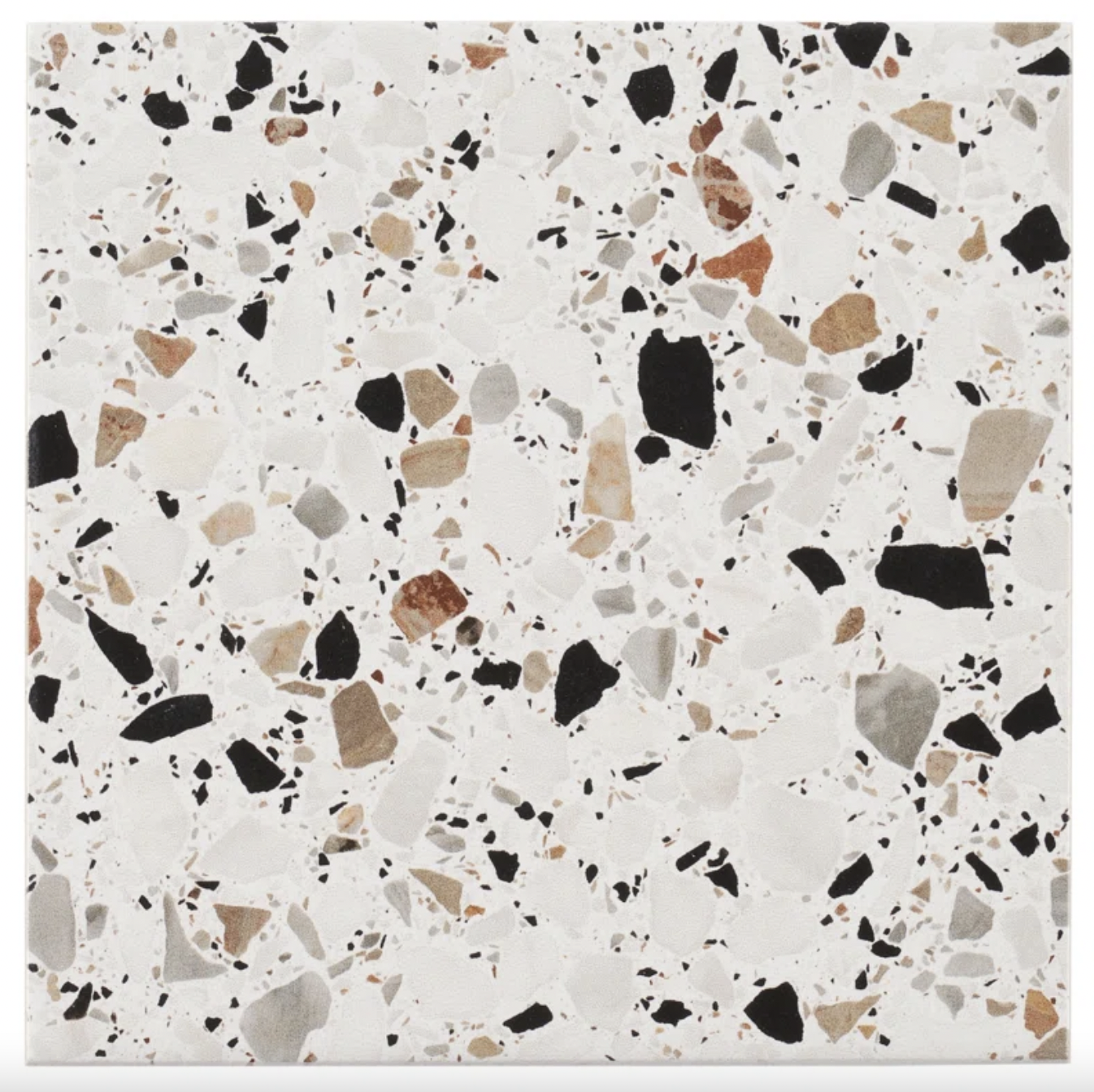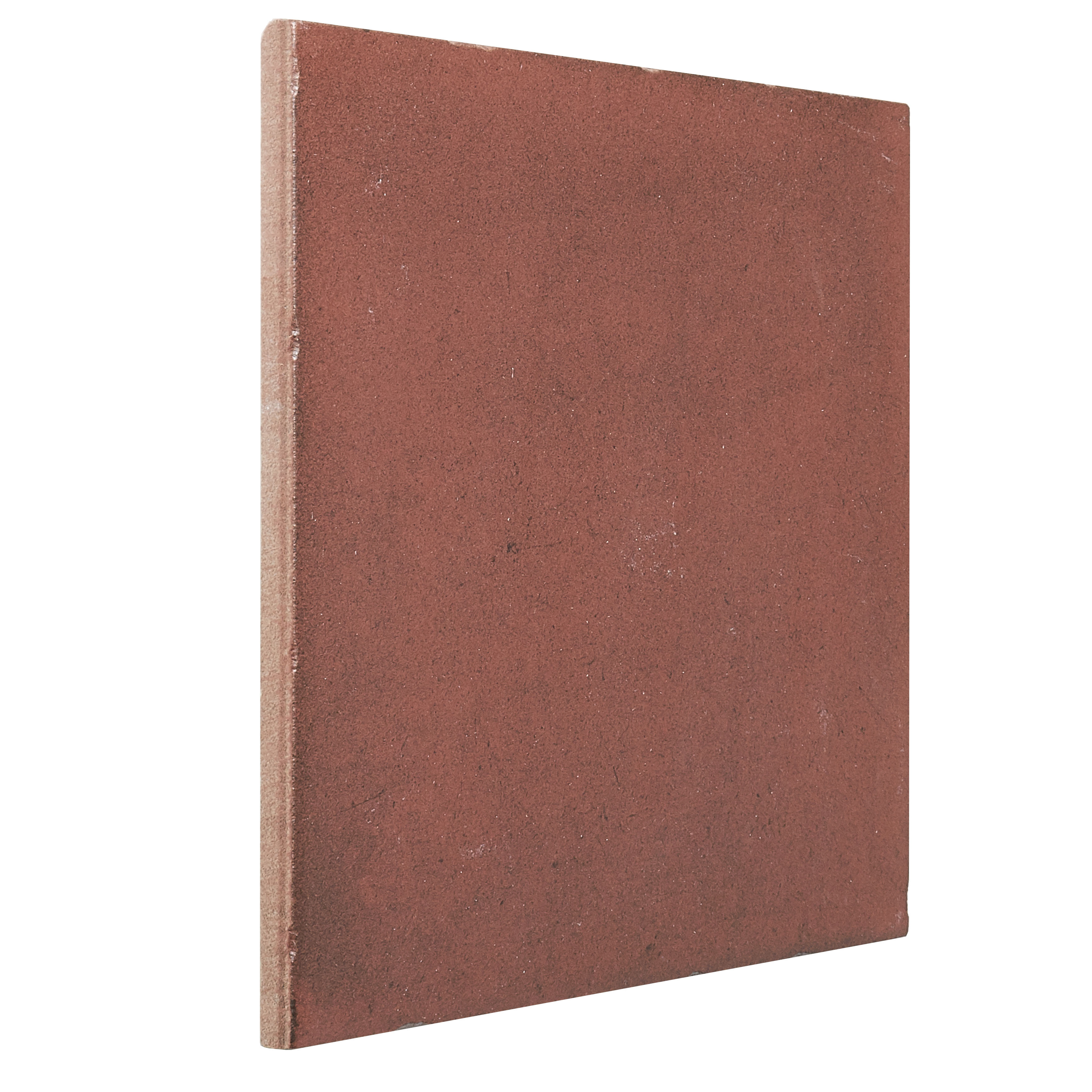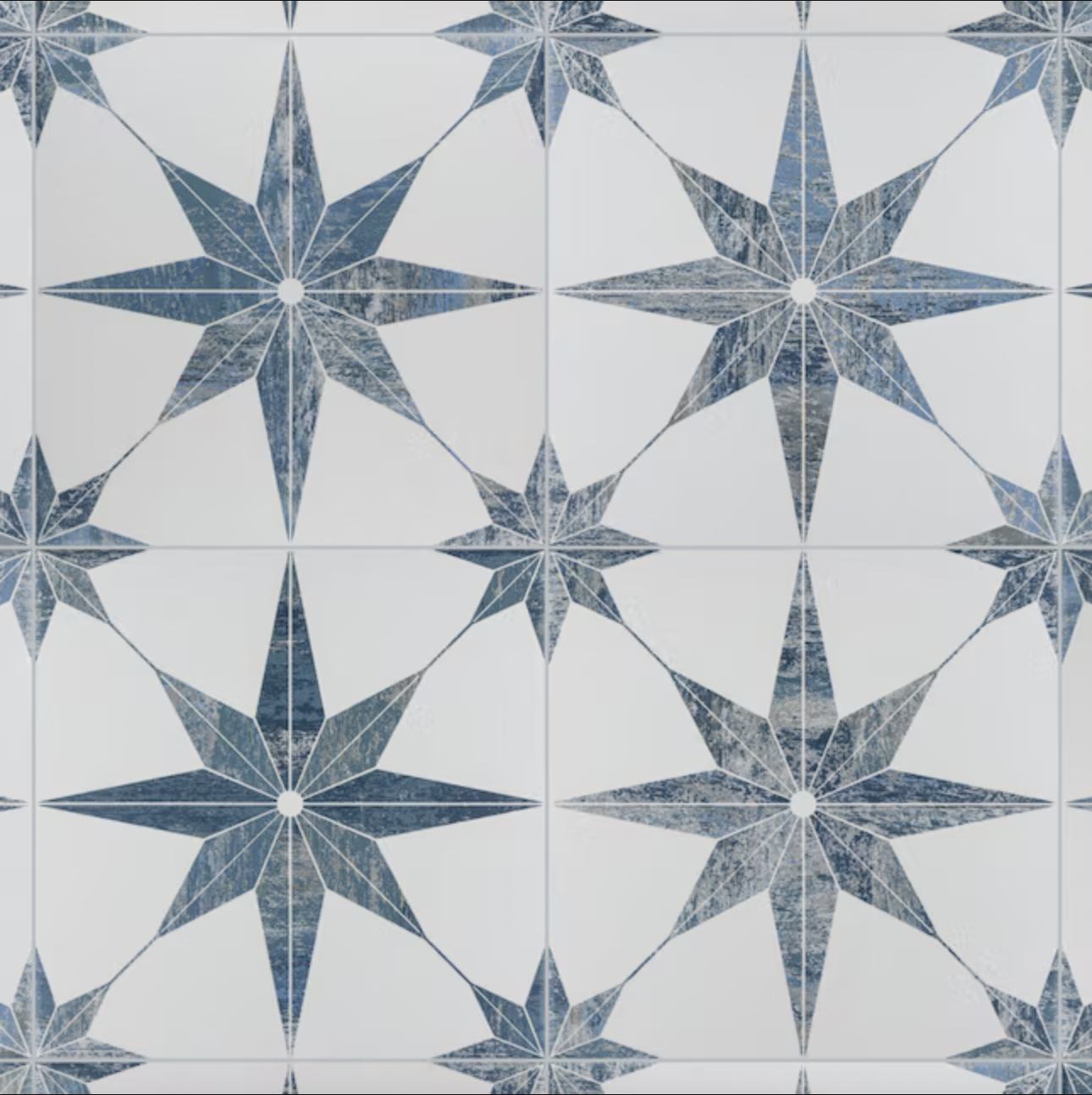Kitchen Floor Tile Ideas — 14 Styles, Layouts, and Techniques to Add Flair to Your Space
These designer-approved tile ideas will bring color, pattern, and texture to your kitchen floors
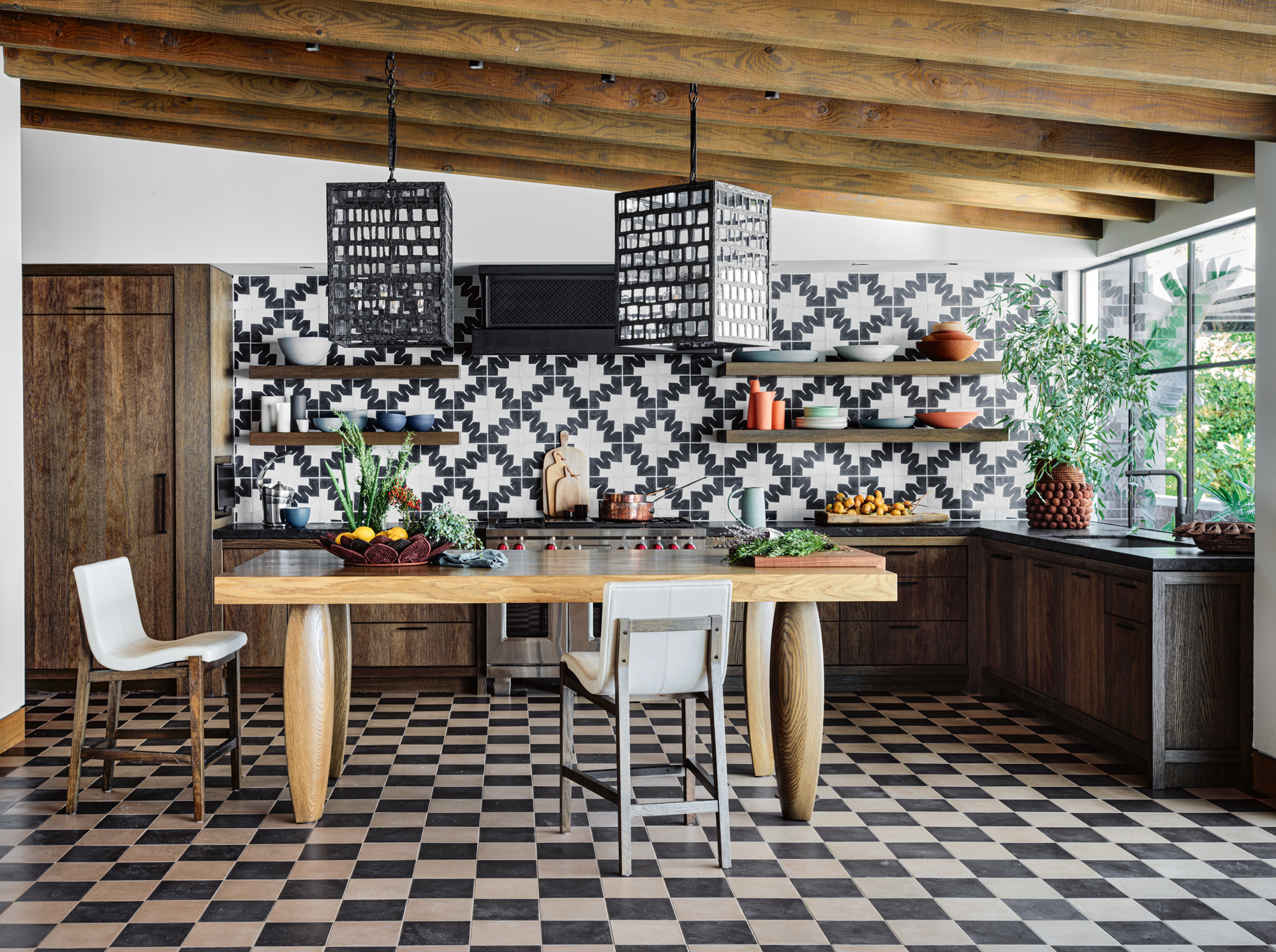
- 1. Be creative with pattern configurations
- 2. Opt for a timeless look with a Herringbone formation
- 3. Use striped tiles to maximize the space
- 4. Choose monolithic slabs for a seamless look
- 5. Consider terracotta tiles for a natural feel
- 6. Ground your kitchen with neutral floor tiles
- 7. Use tiles to zone an open plan space
- 8. Mix tiles made of different materials
- 9. Give traditional flagstone tiles a twist
- 10. Create a checkerboard floor
- 11. Refresh existing tiles with chalk paint
- 12. Keep it classic with black and white
- 13. Imitate terrazzo with tiles
- 14. Use tiles to separate a galley kitchen
- FAQs
Lilith Hudson
Tiles make an excellent floor choice for your kitchen. Durable and hard-wearing, they can last a lifetime if cared for properly, plus there are so many ways to get creative with your configurations to add visual interest underfoot.
Choosing tiles as part of your kitchen flooring ideas can allow you to unleash your creativity. Without being bogged down by the practicalities that islands, countertops, and cabinets require, this is where you can have a little fun. That said, whether you opt for patterned, plain, or somewhere in between, kitchen floor tiles occupy a vast amount of space, so getting them right is key to creating a stylish look.
You'll need to think carefully about your tile design before diving in, though. Not only will you need to consider the size, color, and pattern but how you lay them is incredibly important, too. As our experts will attest, a carefully thought-through configuration can help enhance the perception of space within your kitchen, as well as work to zone areas within an open-plan room. The possibilities are endless but, to help you decide, we've rustled up some expert insights.
1. Be creative with pattern configurations
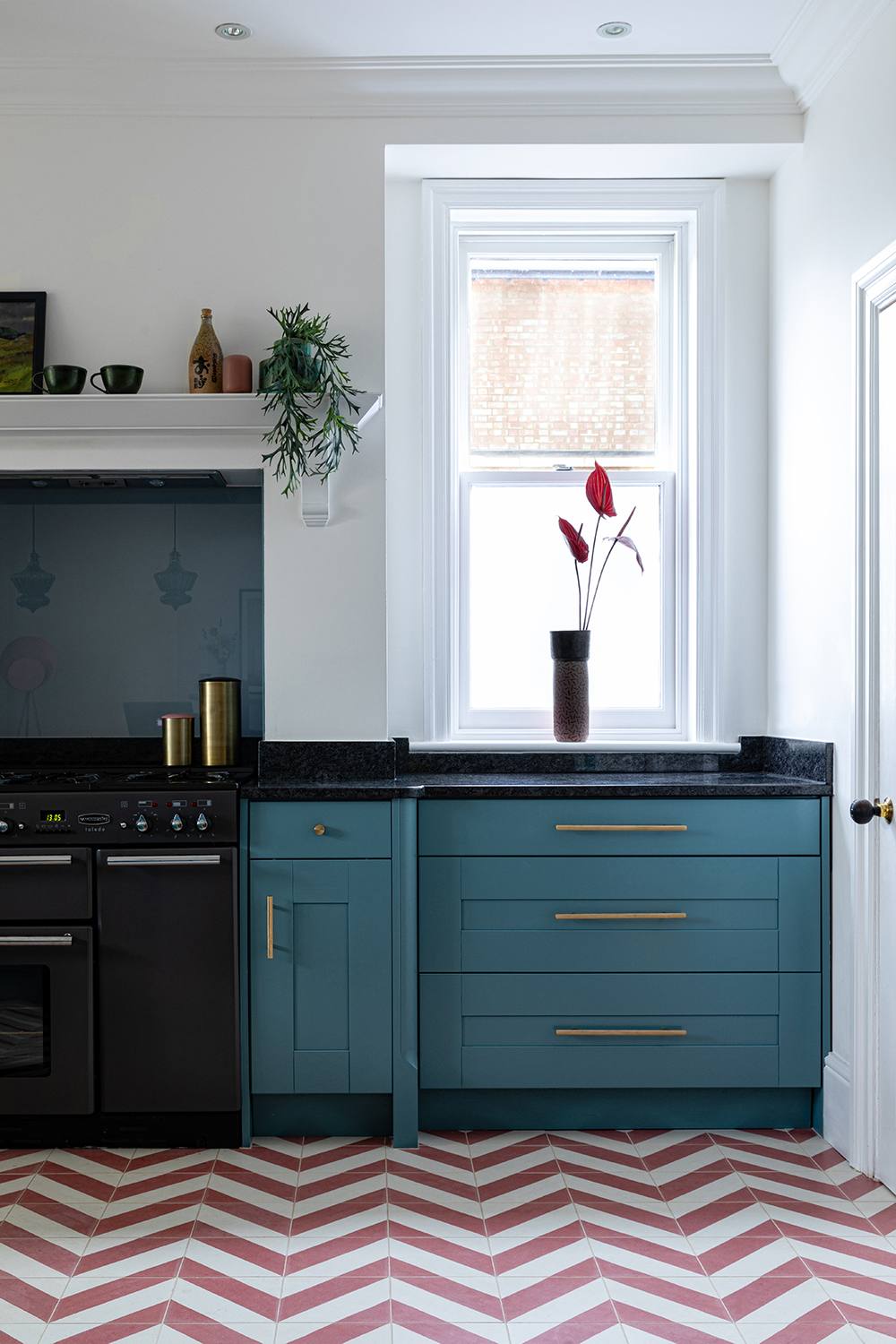
Design by Folds Inside
Choosing a floor tile you love is, more often than not, only half of the process. The next step is to work out the laying pattern, and depending on the design of the tile you choose, this can be a whole separate creative endeavor in itself.
Before you go shopping for your favorite colored or patterned tile, consider the configuration. If your tile offers a self-contained repeat and looks exactly the same whichever way you place it, then you’re good to go. However, if the tiles you’ve selected offer the potential for multiple different looks and patterns, then that’s where the fun begins.
"I always draw digital mock-ups of the rooms I’m designing," says Emma Gurne, founder of interior design studio Folds Inside, offering a key piece of advice for your kitchen tile ideas. "This means that when it comes to tiles, I can play around with different formations digitally first to decide what works best." From brick bonds to basket weaves, the world really is your oyster when it comes to laying patterns, so be sure to do your research.
2. Opt for a timeless look with a Herringbone formation
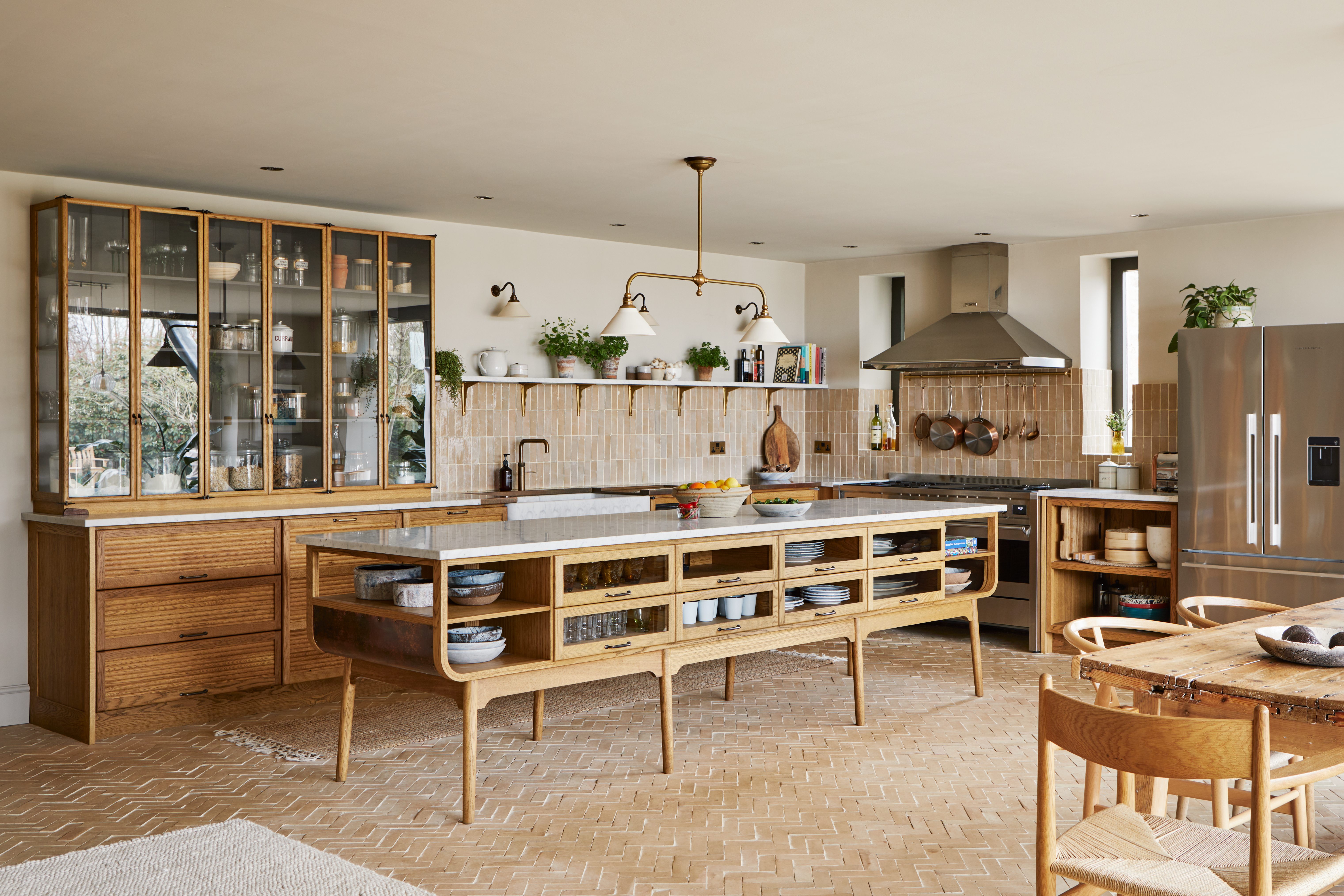
If you're stumped for a laying pattern but want a timeless look that promises to stand the test of time, consider choosing a herringbone formation. One of the best layouts for subway tiles, this interlocking look is a great kitchen floor tile idea to bring a dynamic feel to your floors and add plenty of visual interest — plus, it's a popular choice among designers.
You can choose various colors if you want to create a pattern or play it safe with a simple sandy or terracotta tone to add warmth underfoot. "A nod to tradition, creating a herringbone pattern with neutral and rustic tones adds a timeless feeling to any kitchen, lending a sense of flow and movement that works well in high-traffic areas," says Lee Thornley, founder of Bert & May.
3. Use striped tiles to maximize the space
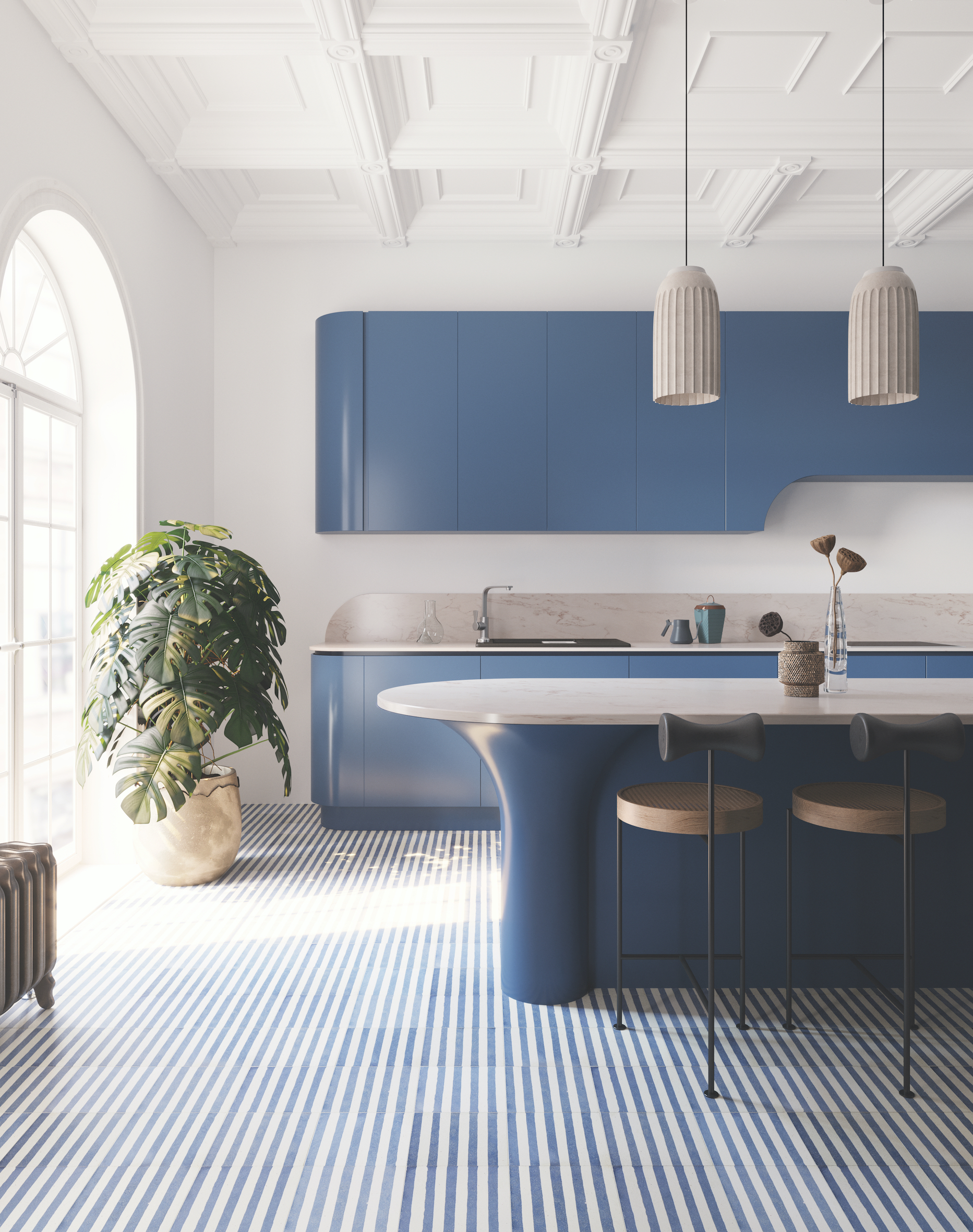
Depending on the floor types you choose, you have the potential to alter the feeling or visual experience of a room. For example, light-toned flooring can really open up a room, while darker tones can help a large space feel more cozy. In terms of pattern, stripes are an immensely influential visual cue. "Stripes have an optical effect," says Damla Turgut, founder of Otto Tiles & Design. "They create the illusion of a much larger space, tricking the eye to add length or width, depending on how they are laid within a room."
There are several ways you can introduce stripes in your tiling. "We love the different looks that can be achieved just by a tweak of color, or the thickness of the stripe," says Damla. "Additionally, another equally visually striking way to create a striped effect is to lay plain tiles in contrasting colors in horizontal or vertical brands."
The thinner the tile and thus the stripe, the more emphasized the effect. "Narrow lines allow for interesting patterns and tessellations," notes Lee. "They create a playful yet refined look in a kitchen, either as a complete decorative display or as a dynamic border tile."
4. Choose monolithic slabs for a seamless look
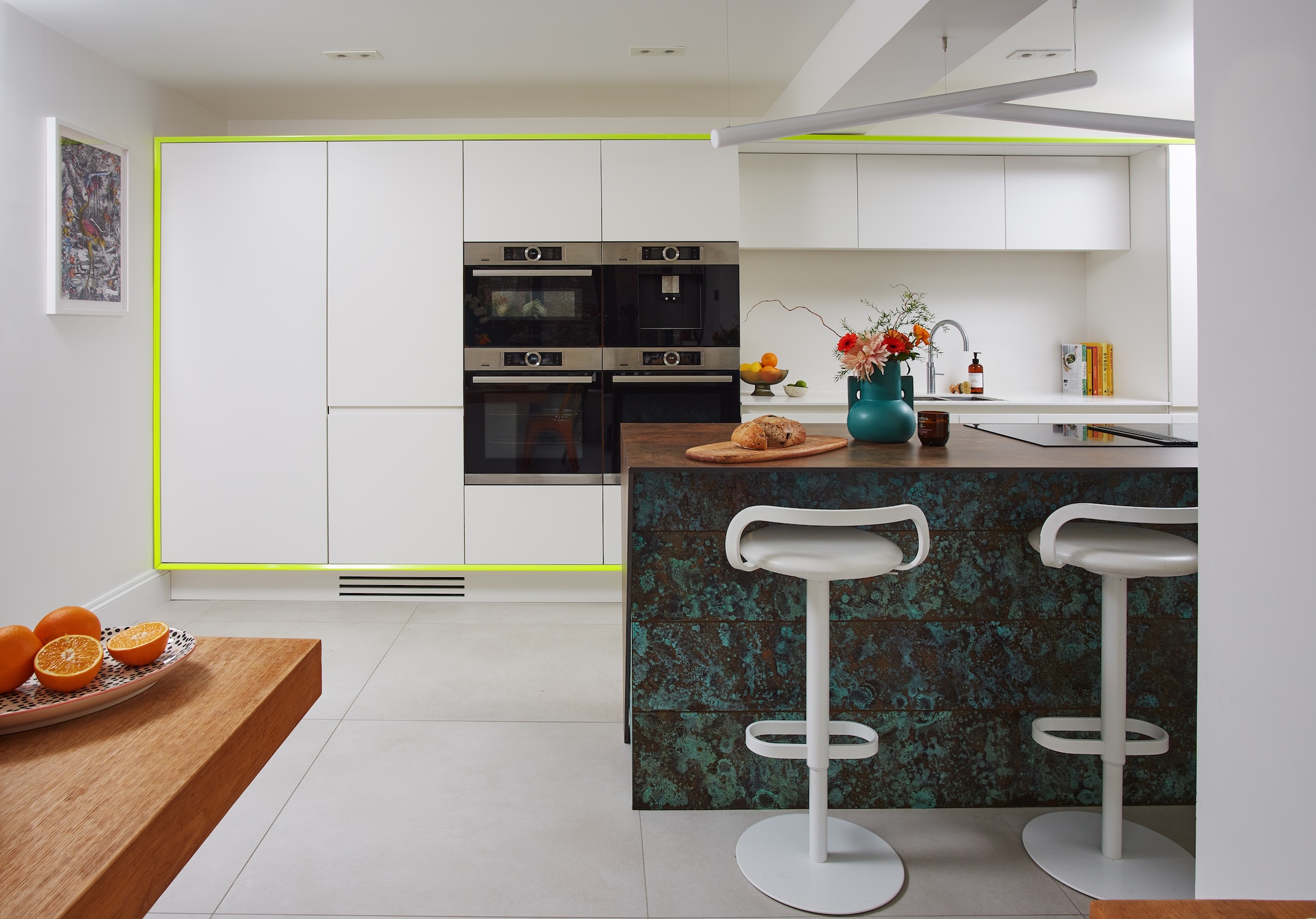
In a similar vein, large monolithic slabs can have great illusory effects on your kitchen floor, too. "Large format tiles help to transform kitchens with a seamless, sophisticated look that’s as practical as it is beautiful," explains Carly Allison, head of product design at Fired Earth. "Large tiles can help to create the illusion of space, even in the smallest of kitchens, and pair well with both traditional and modern cabinetry and finishes."
As well as being one of the most durable kitchen flooring choices, larger tiles make a great visual foundation for your flooring, especially if you choose neutral colors or classic finishes, like a marble effect. "You can also do these larger-scale tiles in all types of shapes, such as a classic hexagon," explains interior designer, Amy Youngblood.
Nathan Kingsbury, creative director at Nathan Kingsbury Design, also notes how large tiles bring a cohesive flow to a kitchen floor, helping to unify various zones. It's a look that lends itself to more modern styles, in particular.
"Rather than competing with other elements in a kitchen design scheme, they can act as a beautiful backdrop to allow your kitchen to be built around and upon," says Nathan.
In the kitchen pictured above designed by Nathan, he and his team ran the tiles from the front entrance through to the kitchen and dining area. "This established a seamless visual continuity through the home, connecting these spaces, which is key for open-plan living," he says. "This continuity grounds the overall aesthetic and adds to the experience, while the feel of the concrete-effect tile brings authentic character to the home."
5. Consider terracotta tiles for a natural feel
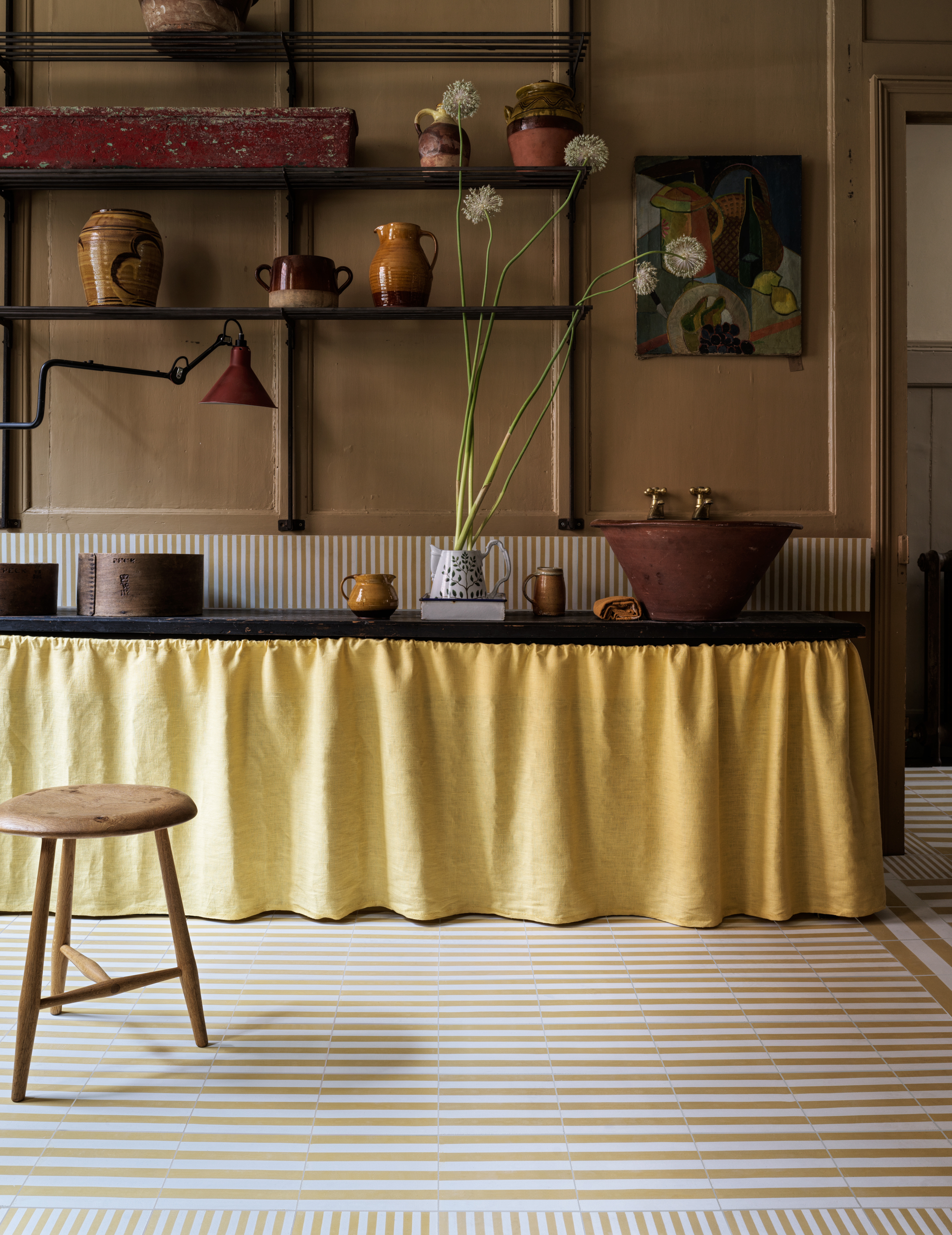
From kitchens with zellige tiles to matte flooring and everything in between, the finish of your tile can have a huge impact on the overall space. Gloss will help bounce light around the room, while natural, unfinished stone will have a more artisanal effect.
For a natural feel, consider choosing terracotta. "Warm, rustic, and tactile, terracotta tiles radiate the feeling of natural living, bringing an earthy charm that feels grounding and homey," says Carly. There are practical aspects to consider, too. "I usually recommend a more matte finish to decrease the chance of slippage," notes Amy. "However, there are some great porcelain floor tiles with hints of metallics in them, which can add some glamour to your kitchen."
These days, you can also buy engineered tiles that mimic natural stone brilliantly, giving you durability without sacrificing style. "Large-format concrete-effect tiles, in particular, add an organic and understated depth to a kitchen, emulating the nuanced beauty of natural cement with a range of tones and textures," Nathan explains.
6. Ground your kitchen with neutral floor tiles
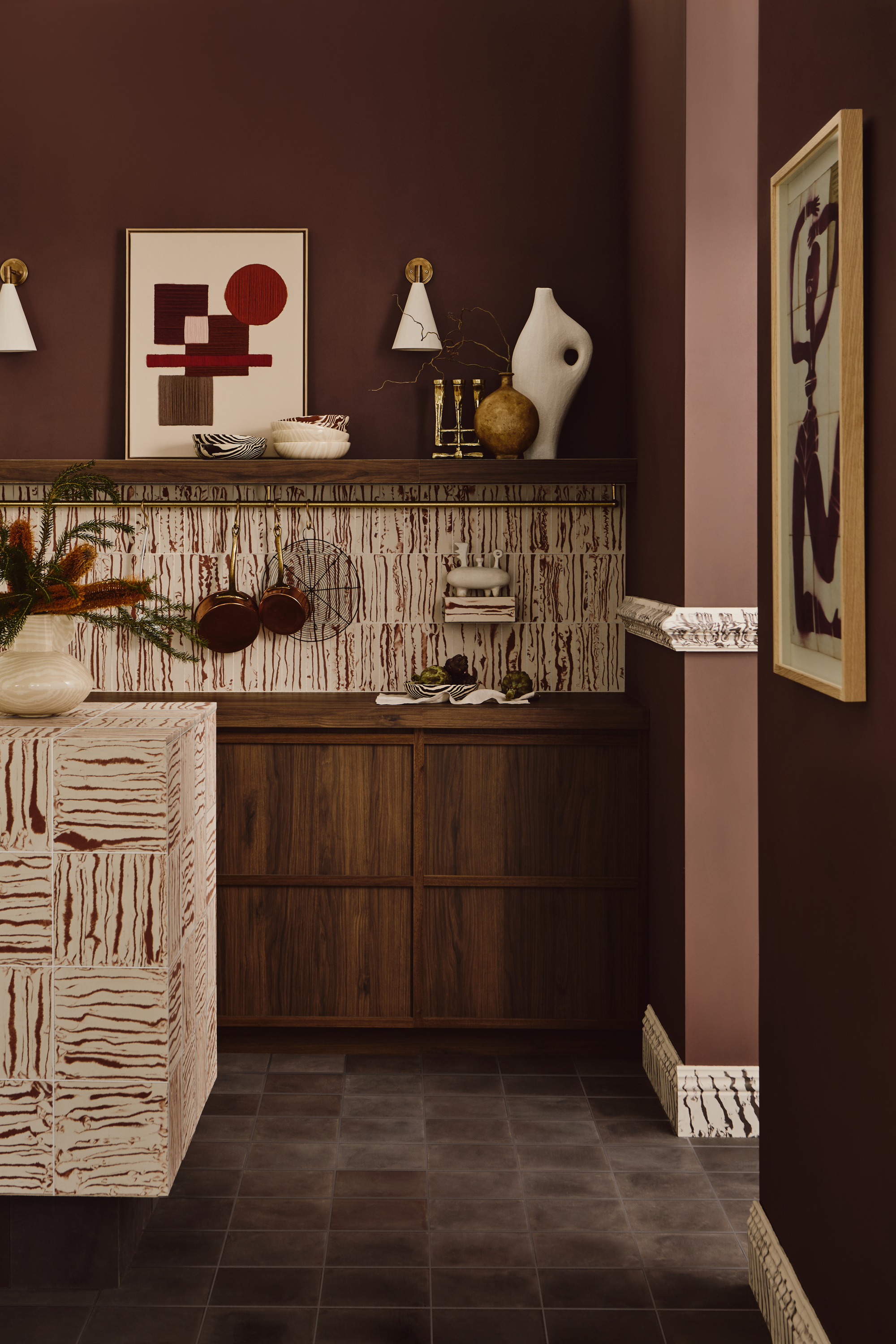
When establishing how to choose kitchen flooring, it's often a good idea to keep it neutral. However, this doesn't have to mean a bland white kitchen floor tile. From sandy stones to nuanced brown patinas, there are so many ways to ground your flooring with neutral kitchen floor tile ideas, offering you the chance to let colorful cabinetry or painted walls really sing.
"Avoid floor tiles that are too complicated and instead opt for more neutral and classic options," says Amy. "This means you can go with more exciting, more noticeable tiles somewhere that also won’t cost a lot, such as backsplash or upper areas, which are also more easily replaceable when trends in looks and color eventually change."
You can find a great selection of kitchen floor tiles from cork to engineered wood on Wayfair.
7. Use tiles to zone an open plan space
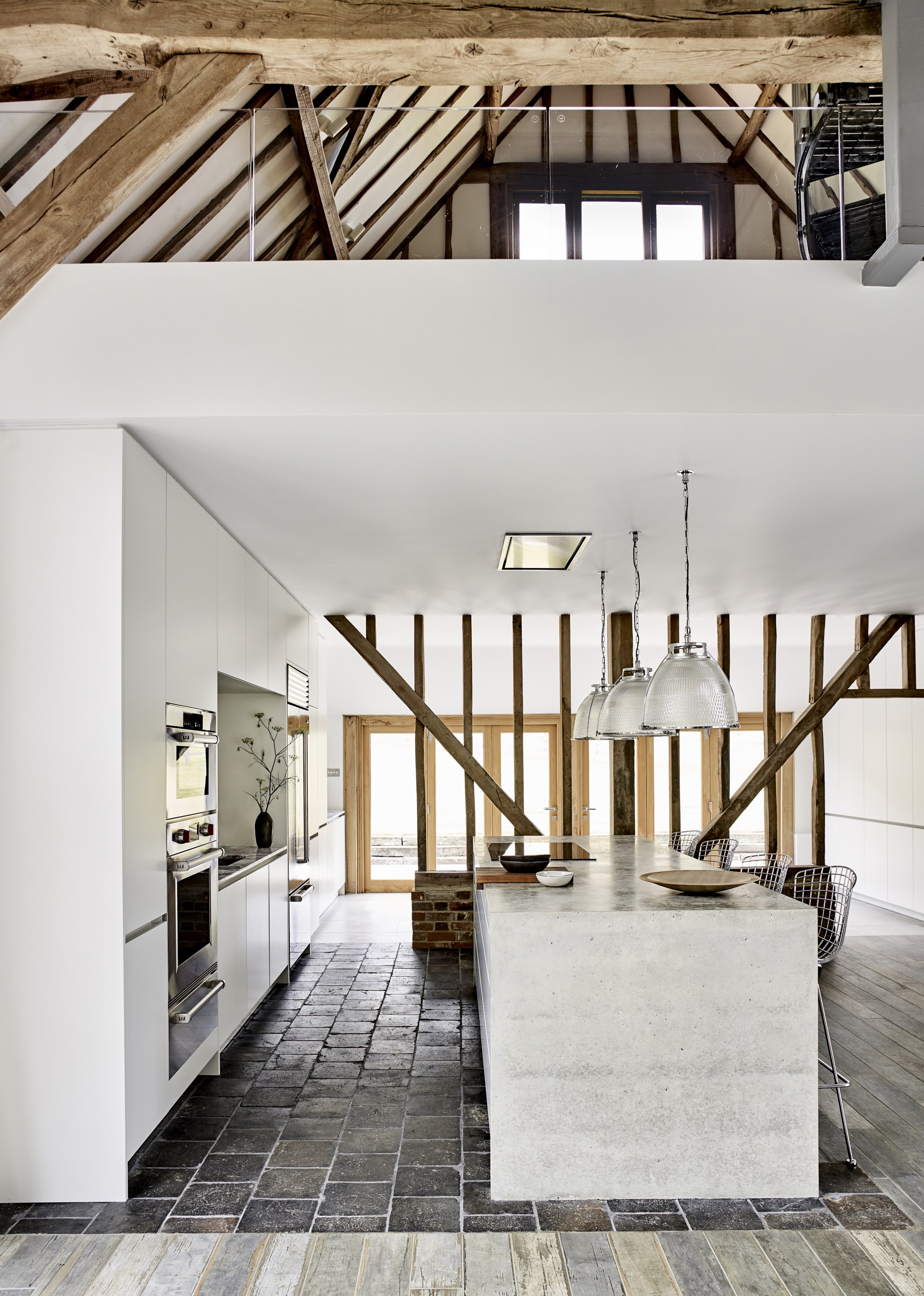
In a room with multiple functions, it can be tricky to decide on the kitchen floor tile ideas that meet all of your requirements. Wooden flooring is often preferred in living rooms for its inherent warmth, whereas tiling is much more practical for a kitchen, so why not combine the two? This will not only add more visual interest, but it can also help you to zone an open-concept kitchen diner.
"We are often asked to use a hard-wearing, hardworking surface in the kitchen only, with clients preferring the use of a softer material such as timber in other living areas," explains Ben Hawkswell, senior designer at Roundhouse. In this project, natural stone grounds the kitchen space, and wooden flooring surrounds it. Not only is this a practical solution — it also creates an interesting design feature.
You don't have to rely on mixing materials, either. You could play with scale, laying pattern, color, or all three to mix up your flooring formations and zone the room. "Small kitchen floor tiles can work especially well at connecting areas to the kitchen or pantry," says Amy.
8. Mix tiles made of different materials
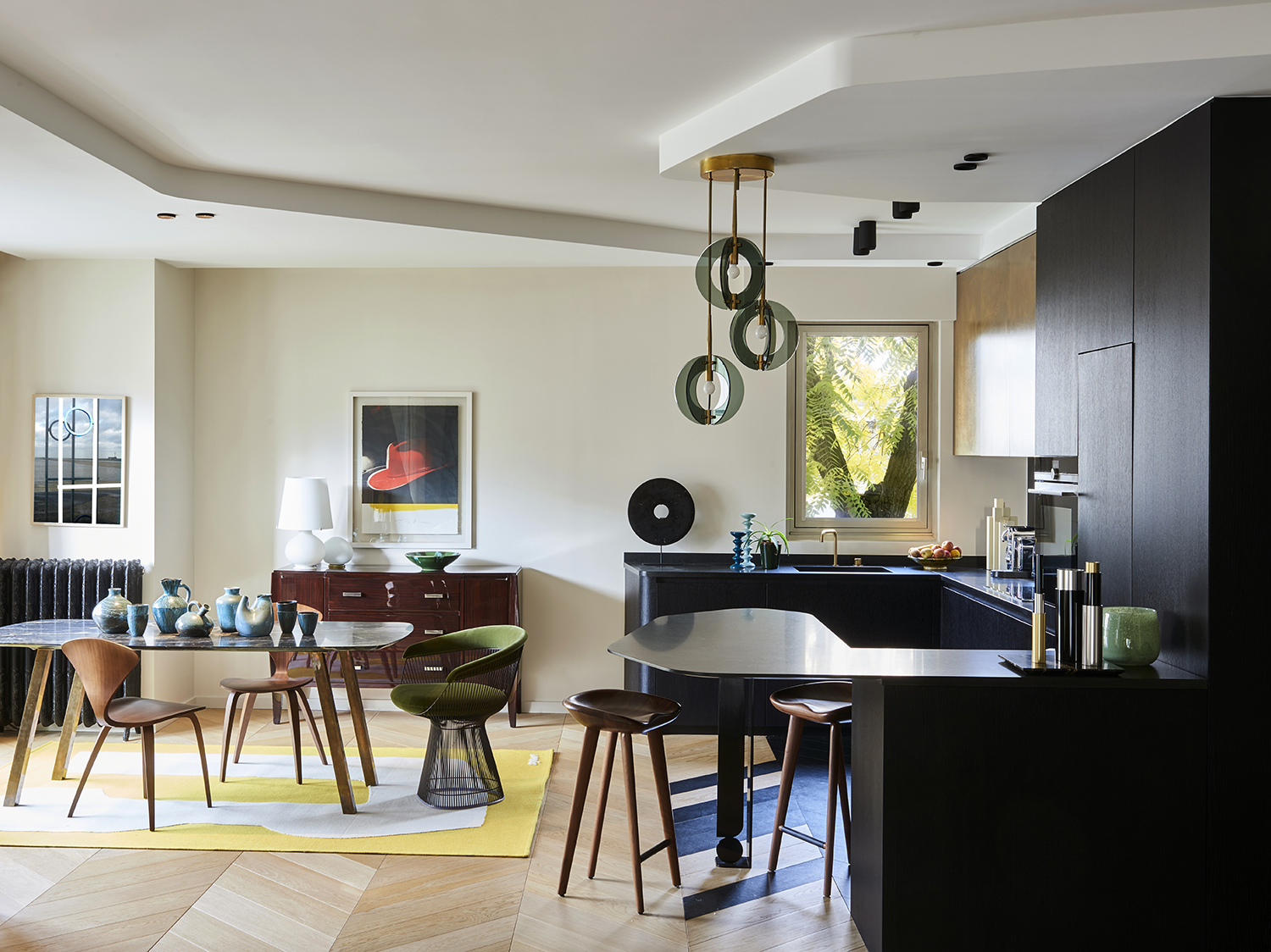
Design by Le Berre Vevaud
If you think that mixing tiling with your wood flooring ideas will work in your space but you want to add a modern twist, this idea could be for you. Designed by French interior design studio Le Berre Vevaud, the stylish space above benefits from the dynamic interplay between the two types of flooring.
"Where the kitchen and dining space meet, we gradually replaced the beech wood panels in the traditional herringbone parquet flooring with tiles made of black granite that were exactly the same dimensions," say co-founders Raphaël Le Berre and Thomas Vevaud. "The effect distinguishes the difference between the spaces, while also offering practicality and a sophisticated look."
When combining different types of flooring, Ben offers the following advice. "Check the thickness of both types of flooring — you may need to make one thinner or adjust the subfloor accordingly, so they lie level," he says. "Consider where they will join, and whether a metal or brass trim may help the transition look smarter."
9. Give traditional flagstone tiles a twist
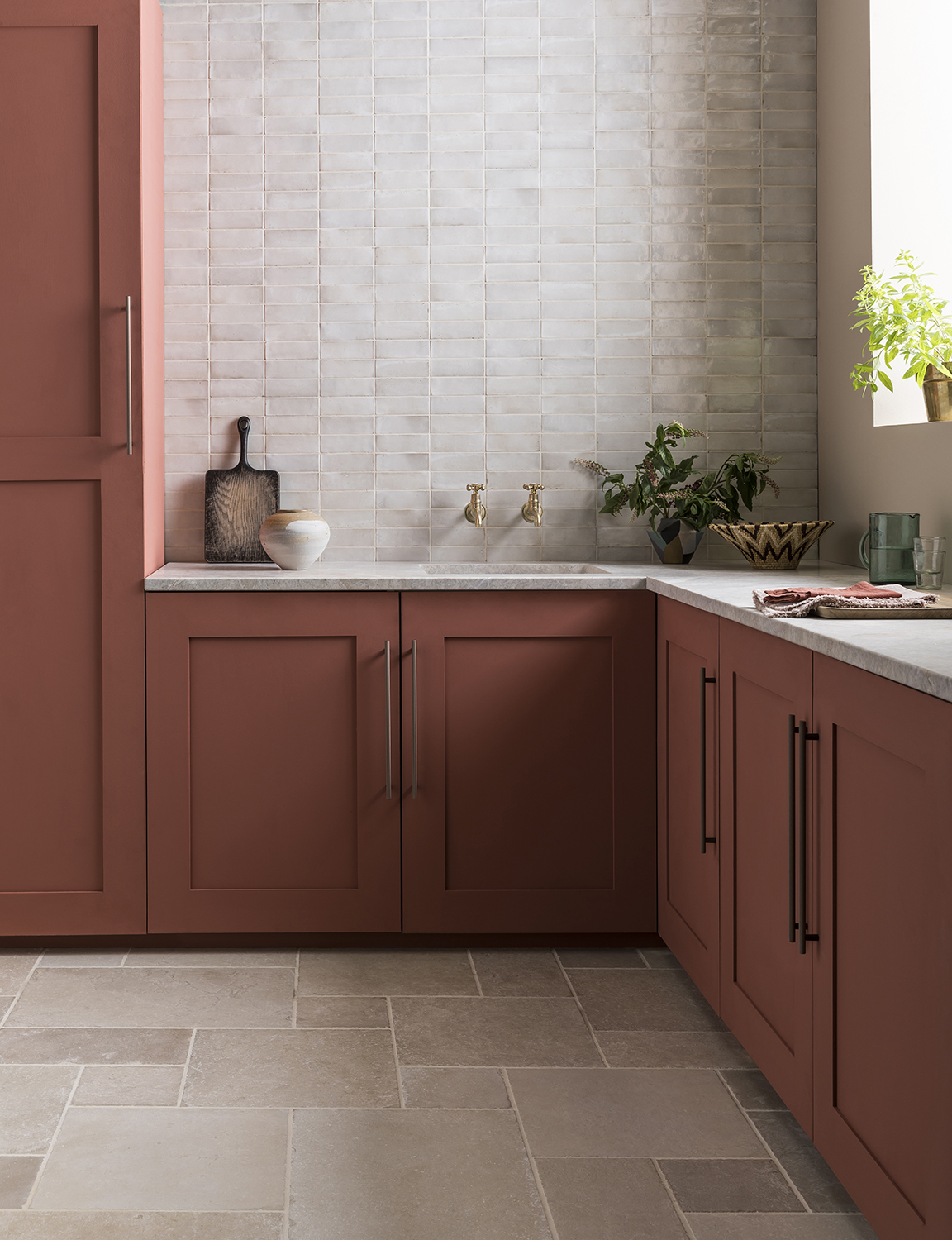
An enduringly popular choice, flagstone style flooring is one of those kitchen trends that will stand the test of time. "Traditional stone flooring not only looks aesthetically beautiful, but it has many other benefits too," says Louisa Morgan, creative director at Mandarin Stone. "Whether you go for natural stone tiles — or, as shown here, porcelain tiles that mimic the look — both materials are exceptionally durable and will naturally heat to the ambient temperature of the room."
Working equally well in both period properties and more modern spaces, there are a few variations and options to consider. "Tiles with honed surfaces and straight edges might suit a more contemporary home, whereas the antique style with tumbled edges may be more appropriate in style for an older house," says Louisa.
The brilliant thing about flagstone-style tiles is the opportunity for continuity in the rest of your home. "Spacious flagstones are ideal for carrying through to other areas such as hallways and living areas," suggests Louisa. "Their natural, earthy tone provides a stylish, yet timeless look."
10. Create a checkerboard floor
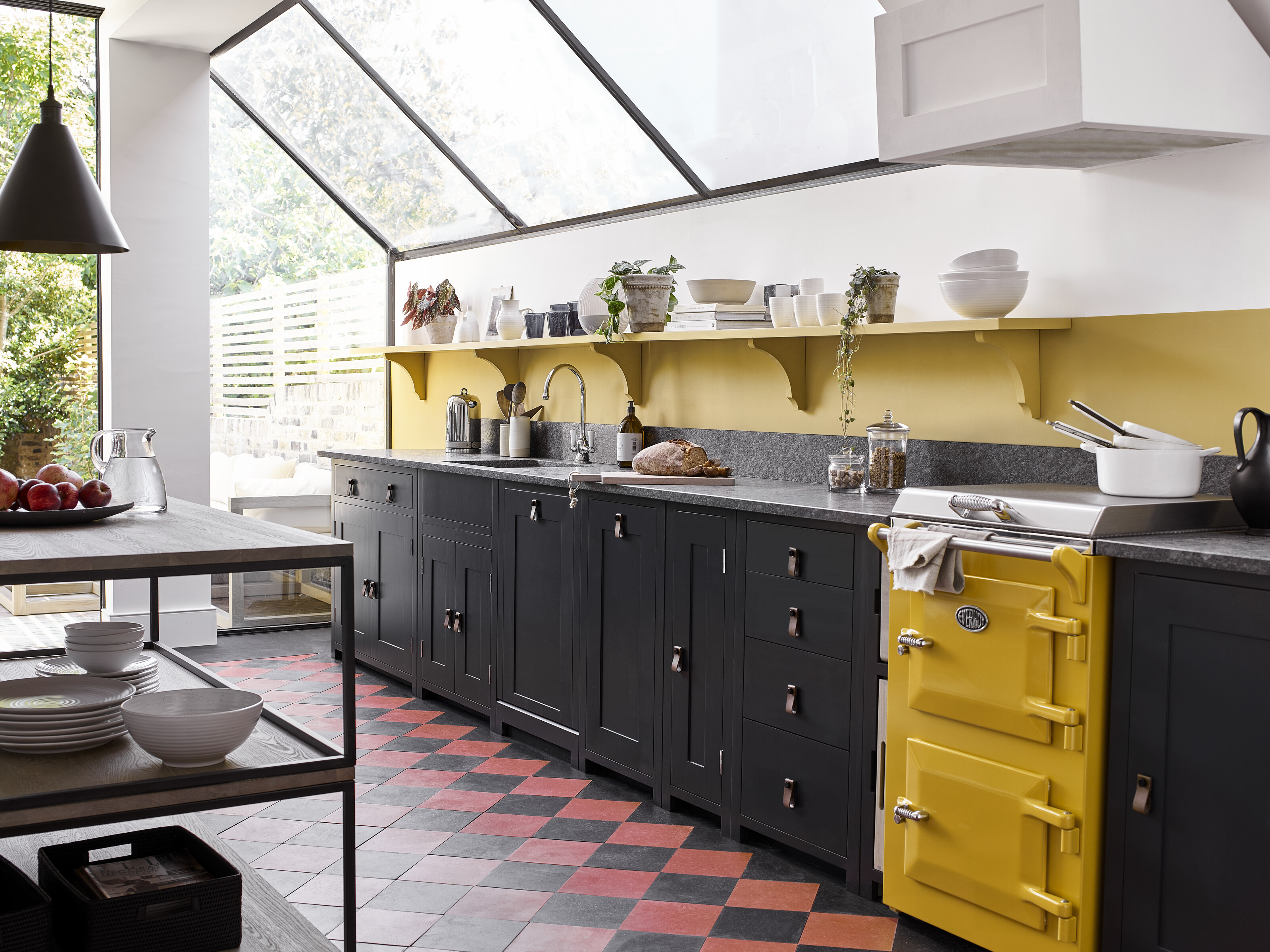
Another traditional kitchen floor tile idea that’s made a huge comeback in the past couple of years is checkerboard flooring. It’s easy to achieve — simply choose two plain tiles in complementary colors and lay them alternately — yet the effect is incredibly striking.
For a cohesive look in your kitchen, color match one of the tiles to the color of the units, and introduce interest by using a contrasting color across the other tile. As ever, the laying pattern will have a considerable impact on the final look. Positioning the tiles at a 45-degree angle from the wall will create a fun diagonal diamond pattern, while straight columns of tiles will provide a more regimented feel.
11. Refresh existing tiles with chalk paint
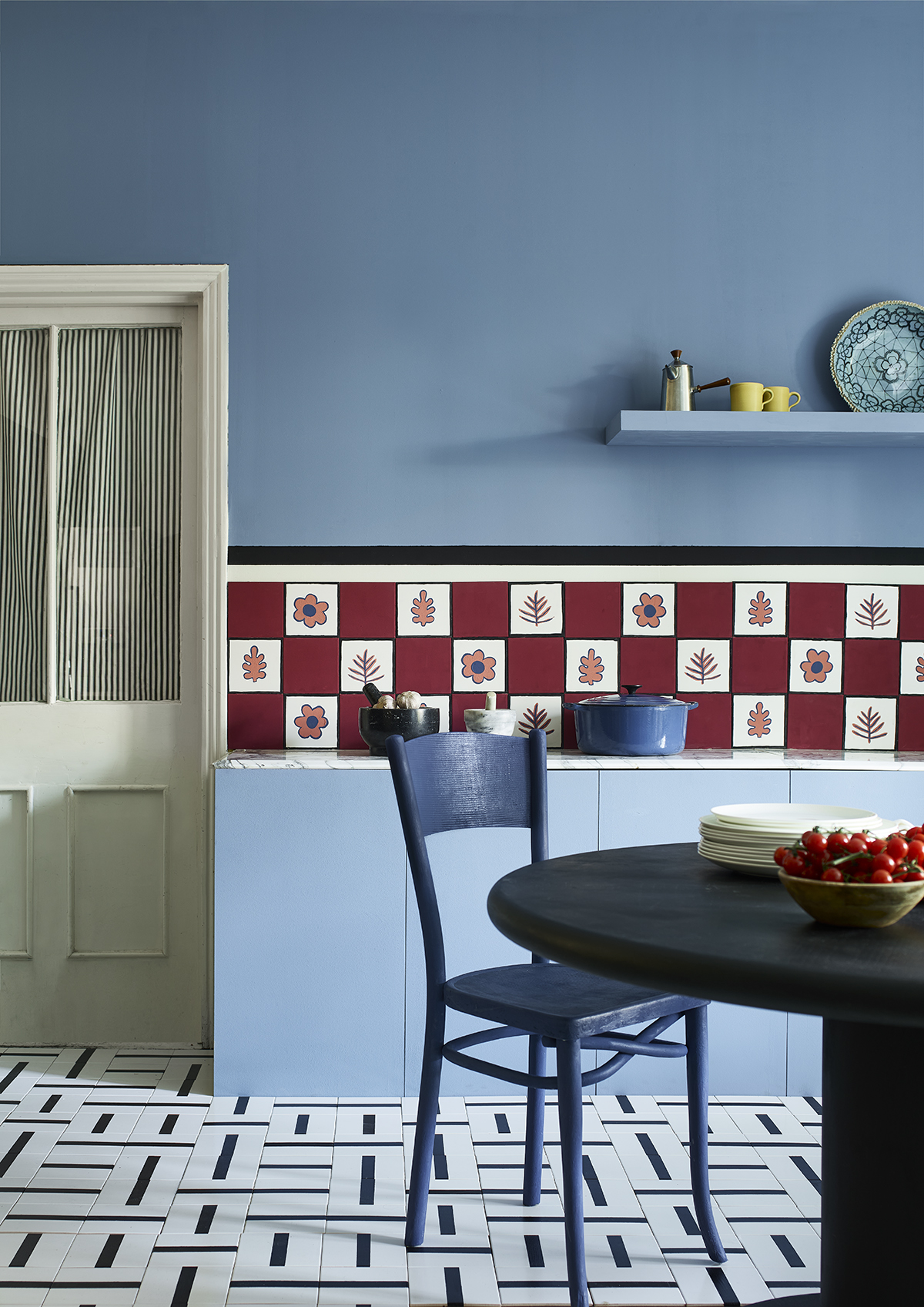
If you’re desperate for a new look but aren’t able to completely replace your tiles right now, how about revamping your existing ones by painting a tiled floor? "You can paint your tiles for a fraction of the cost of buying new ones," says Color and Paint Expert, Annie Sloan. "The only skills you need are patience, imagination, and a little forward planning."
In this project, plain white tiles were given a new lease of life with a graphic stripe design. "We used masking tape to map out the design, covering the entire tile apart from a strip which we painted black," explains Annie.
As with any DIY project, a plan of attack is key. "Tiled surfaces need to be given plenty of drying time between coats — probably about 48 hours — so it’s best to completely avoid the area during this time, if you can," Annie says. "If you can’t do the whole floor at once, do half at a time so you still have some access to the room. Lacquer is the final coat, and should be allowed to cure for full durability."
12. Keep it classic with black and white
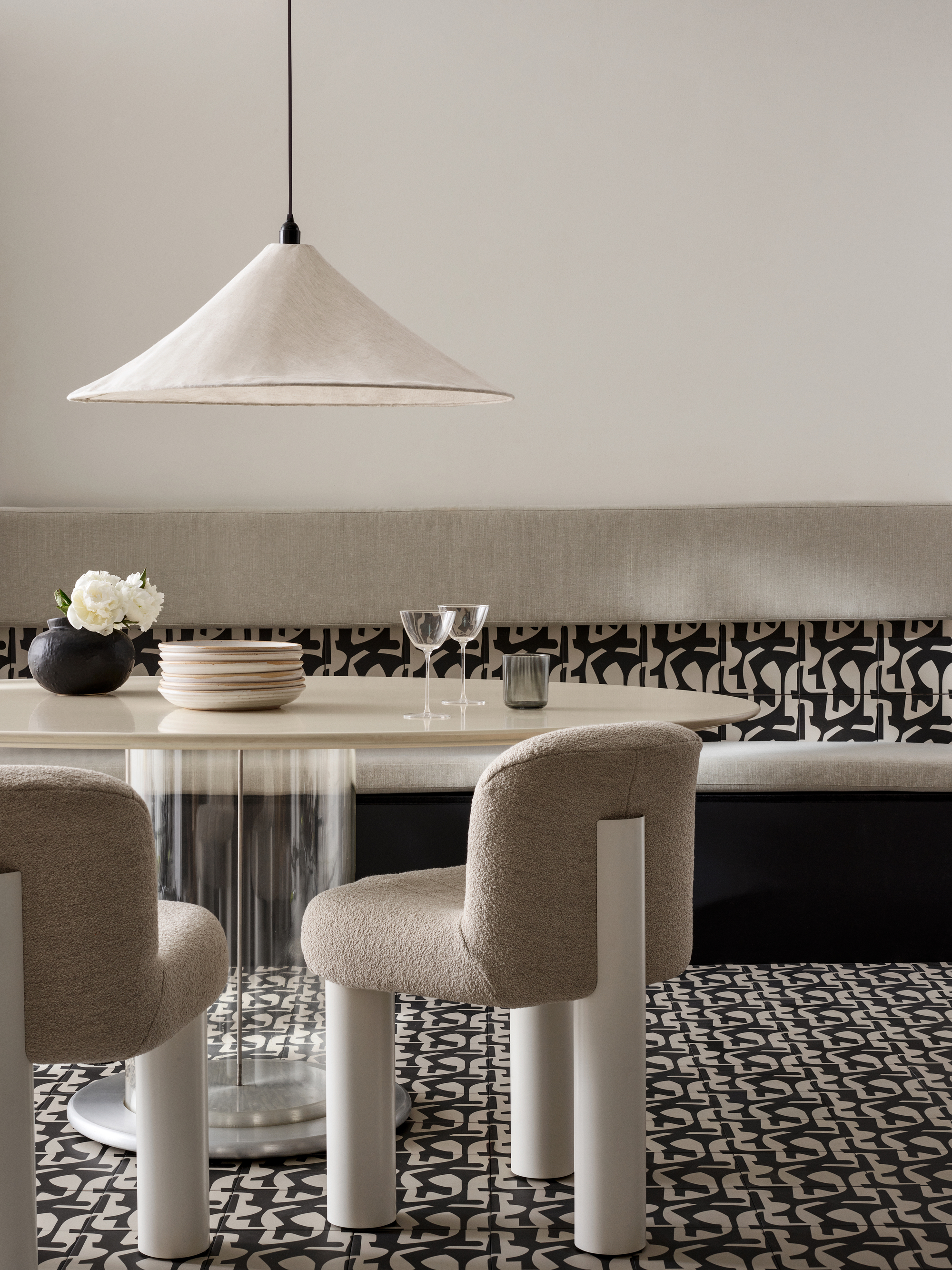
Whether you opt for checkerboard flooring, a herringbone pattern, or a mosaic, there's something so classic about a black-and-white color pairing. It's a look that's especially popular right now with more graphic, asymmetrical tile designs or formations, like the one above by Fired Earth. It looks contemporary and intricate, yet timelessly chic.
The key to using such a bold technique is to introduce some regularity, so the patterned tiles create a pleasing design that is easy on the eye and less jarring, despite the busyness.
13. Imitate terrazzo with tiles

When it comes to terrazzo flooring, the costs can escalate pretty quickly. However, terrazzo tiles are more affordable, easier to work with and come in a variety of different colors.
Here, the navy blue tones of the cabinets are matched by a similar blue-gray in the floor tiles. It brings a sense of cohesion to the kitchen and lets the flooring do all the talking.
For something more subtle, choose a softer terrazzo style, with less white space. "I'm a big fan of softly dappled floor tiles," says Livingetc's executive editor, Pip Rich. "They're a great way to introduce the subtle variations of terrazzo without being stuck with the price tag."
There's also a great range of terrazzo floor tiles available at The Home Depot.
14. Use tiles to separate a galley kitchen
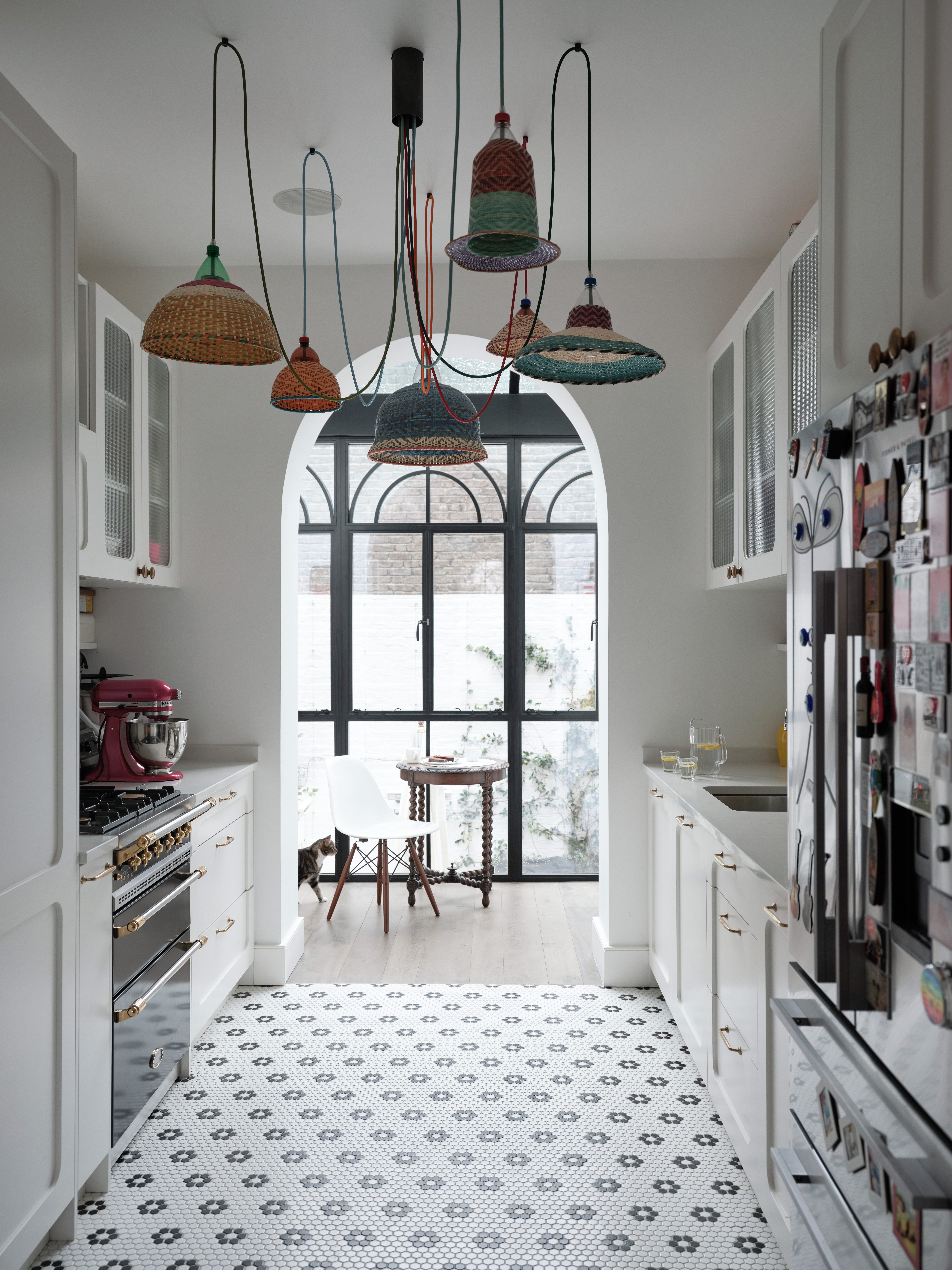
Thanks to all the latest galley kitchen ideas, you can get a lot more into a corridor-style space if you know how to sort the layout. The trick is to stop them from seeming like just a walkthrough.
Here, the mosaic tiles create a delicate pattern, which helps to make the kitchen feel totally separate from the dining area and keep the galley kitchen contained. They also add a much-needed hit of prettiness to this functional space.
FAQs
What kitchen floor tiles are trending?
When it comes to kitchen flooring trends, wooden flooring will always look timeless, but outdated tile choices can instantly date a space. That's why it's best to choose timeless styles and layouts that promise to age gracefully, like terracotta subway tiles in a herringbone formation, or square checkerboard tiles.
More recently, however, designers have been creating stripes using narrow stacked tiles. It's a delicate and elegant way to use floor tiles to bring dynamic movement to a space, and it looks far more contemporary than hexagonal mosaics or other smaller tiles. Better yet, the same tile and color variation can also be used to create a border around the perimeter of your room to add a point of interest and create a polished look.
What types of tiles are best for kitchen floors?
With so many practical demands within a kitchen space, floor tiles need to be both long-lasting and easy to maintain. "In terms of durability, porcelain or ceramic tiles are the best type of tiles for kitchen floors as they are the most robust surfaces and can be easily cleaned using manual or steam methods," says Ben at Roundhouse.
Encaustic tiles are another option and a favorite among designers for their rustic feel. "They’re handmade with natural pigments, so they have a matte, tactile, and earthy quality that I love," says Emma. Though they do require a little more care and attention. "Encaustic tiles are very durable, however, they are porous, so need to be properly sealed when being laid, as well as re-sealing over the years," Emma adds.
What color is best for kitchen floor tiles?
As with any interior scheme, the colors you include across each element should be complementary to one another and work in harmony. Depending on the stage you are at in your kitchen renovation, consider the existing materials and shades to work out a palette for tiling.
"Generally speaking, if your kitchen is naturally a little dark and dingy, a light-colored tile can work wonders to open the space up and make it feel brighter," says Livingetc's executive editor, Pip Rich. "If you’re opting for a patterned tile, a pale ground to the design will help the overall effect to feel less busy."
However, if you want to make a bold impact, opt for intense deep shades. Not only will these darker hues demand your attention for a show-stopping kitchen color scheme, but they’ll also be great for concealing the inevitable stains that are bound to occur in a kitchen.
Be The First To Know
The Livingetc newsletters are your inside source for what’s shaping interiors now - and what’s next. Discover trend forecasts, smart style ideas, and curated shopping inspiration that brings design to life. Subscribe today and stay ahead of the curve.
Interiors stylist and journalist Amy Neason was the Deputy Style and Interiors editor at House Beautiful for years. She is now a freelance props and set stylist, creating work for a range of national publications and brands such as Imogen Heath. She has previously worked at Established & Sons, and her skills include styling still life and interiors shots for editorial features and sourcing unique products to create inspirational imagery. She is particularly respected for interpreting seasonal trends into feature ideas and style stories.
- Lilith HudsonFormer News & Trends Editor
-
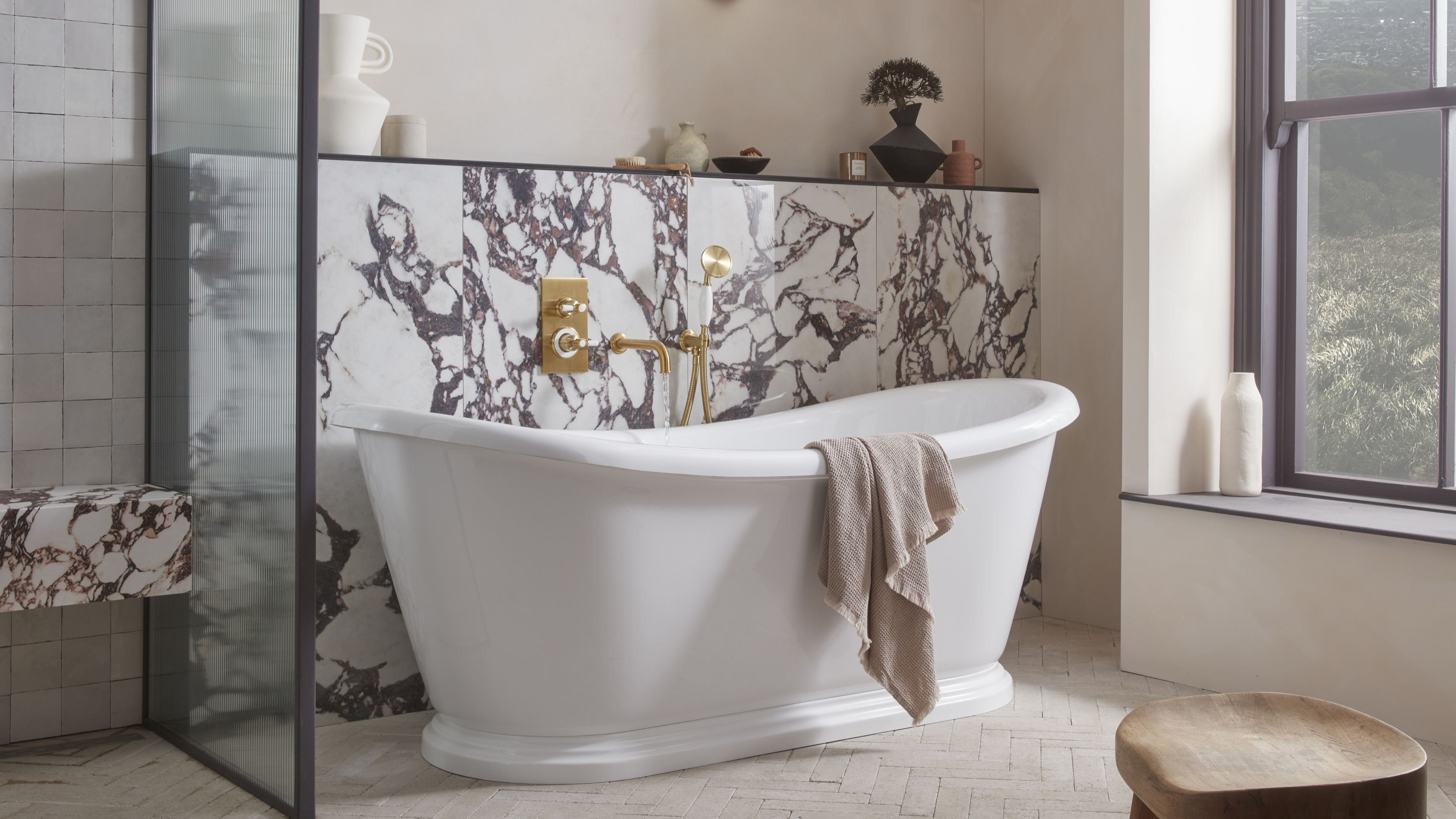 5 Bathroom Layouts That Look Dated in 2025 — Plus the Alternatives Designers Use Instead for a More Contemporary Space
5 Bathroom Layouts That Look Dated in 2025 — Plus the Alternatives Designers Use Instead for a More Contemporary SpaceFor a bathroom that feels in line with the times, avoid these layouts and be more intentional with the placement and positioning of your features and fixtures
By Lilith Hudson Published
-
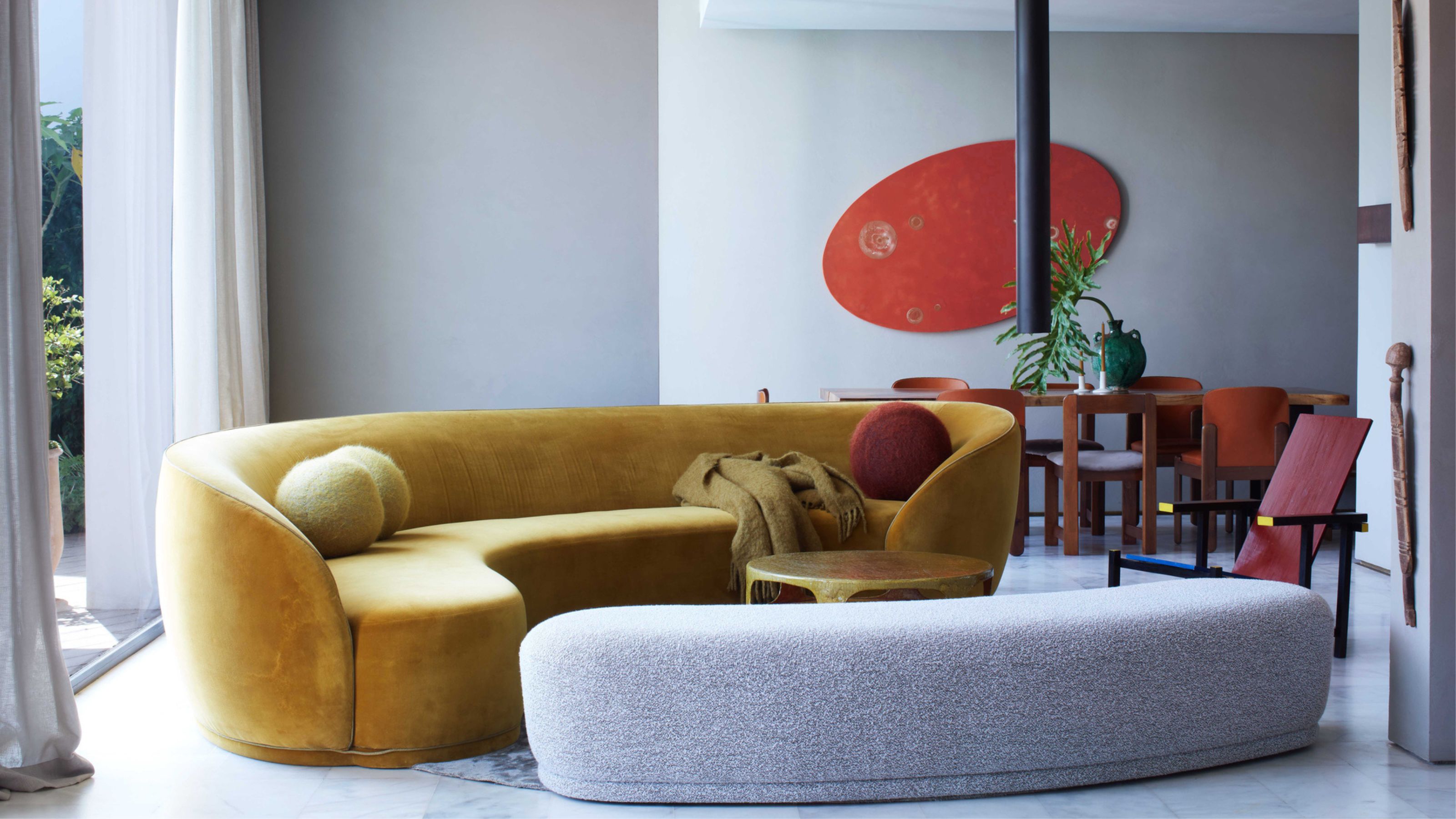 Why Decorating With Mustard Yellow Helps Fill Your Interiors With a Sense of "Confident Calm"
Why Decorating With Mustard Yellow Helps Fill Your Interiors With a Sense of "Confident Calm"There is so much more to decorating with this turmeric-tinted sauce-wiggled-on-a-hotdog not-quite-yellow shade than meets the eye
By Amy Moorea Wong Published
-
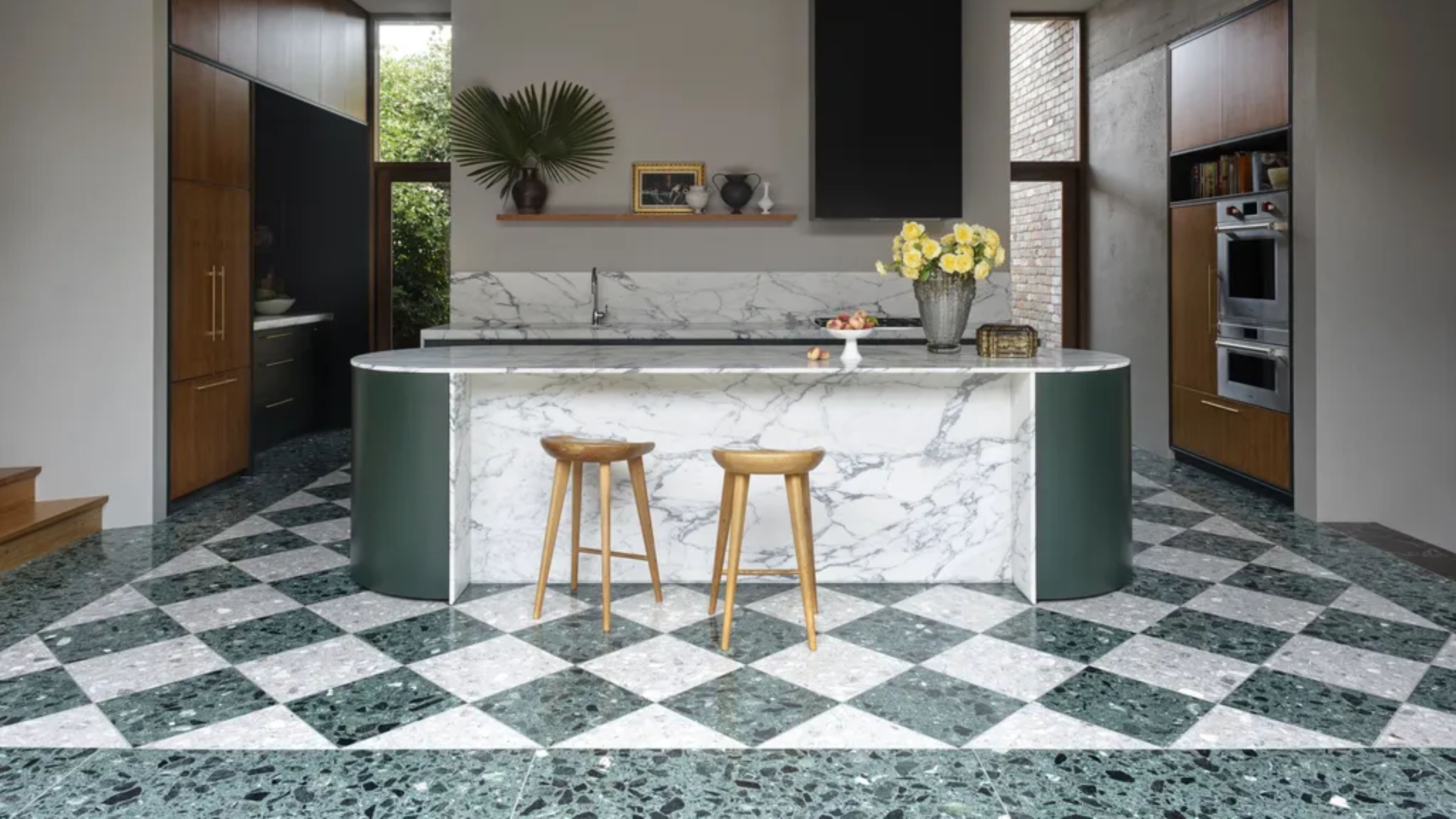 Smeg Says Teal, and We’re Listening — The Kitchen Shade of the Year Is Here
Smeg Says Teal, and We’re Listening — The Kitchen Shade of the Year Is HereDesigners are already using the soft, sea-glass green everywhere from cabinetry to countertops
By Julia Demer Published
-
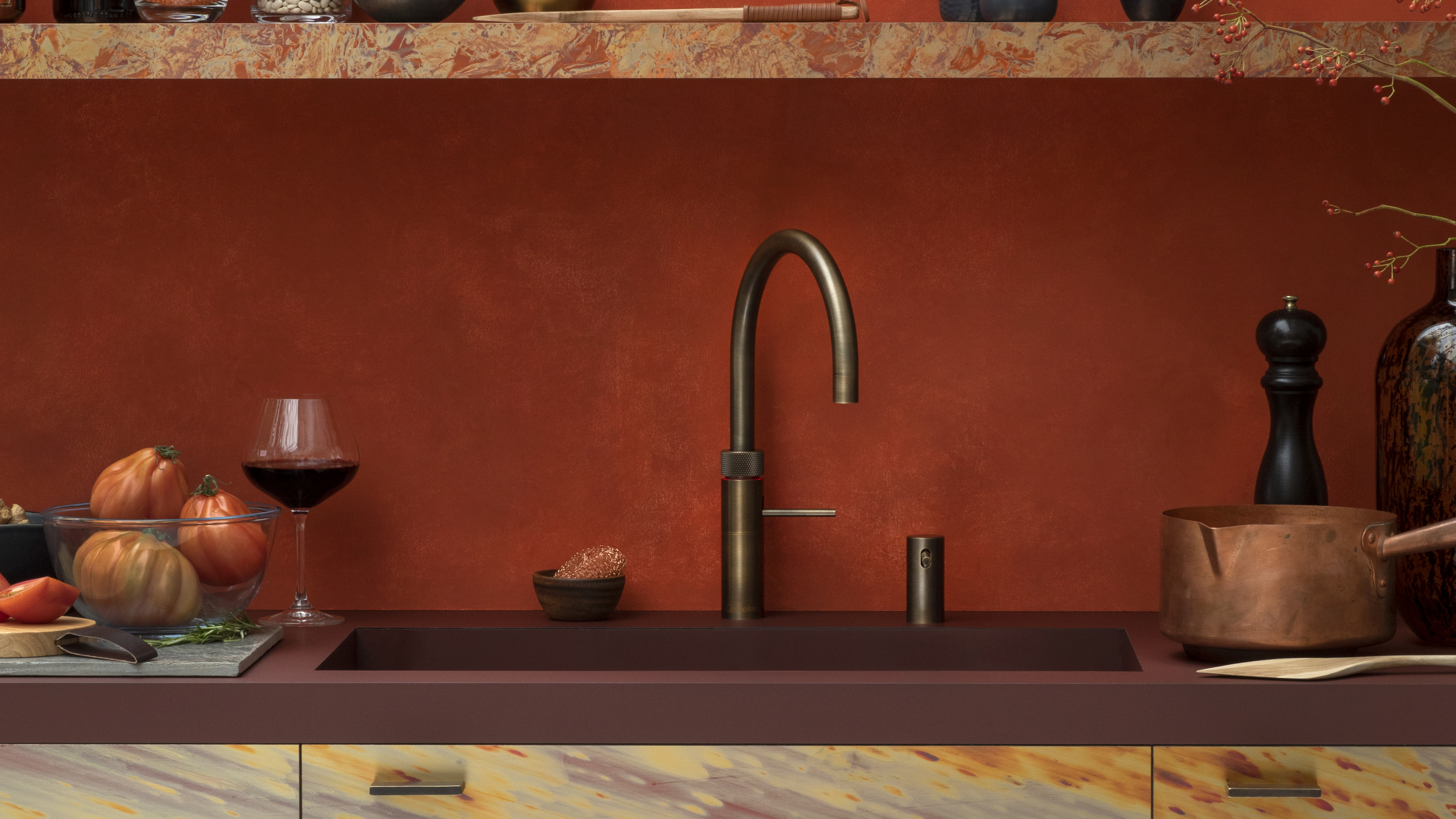 5 Problems With Boiling Water Taps That No One Ever Talks About — And How to Troubleshoot Them
5 Problems With Boiling Water Taps That No One Ever Talks About — And How to Troubleshoot ThemWe got our experts to spill the beans on the truth behind these kitchen staples
By Maya Glantz Published
-
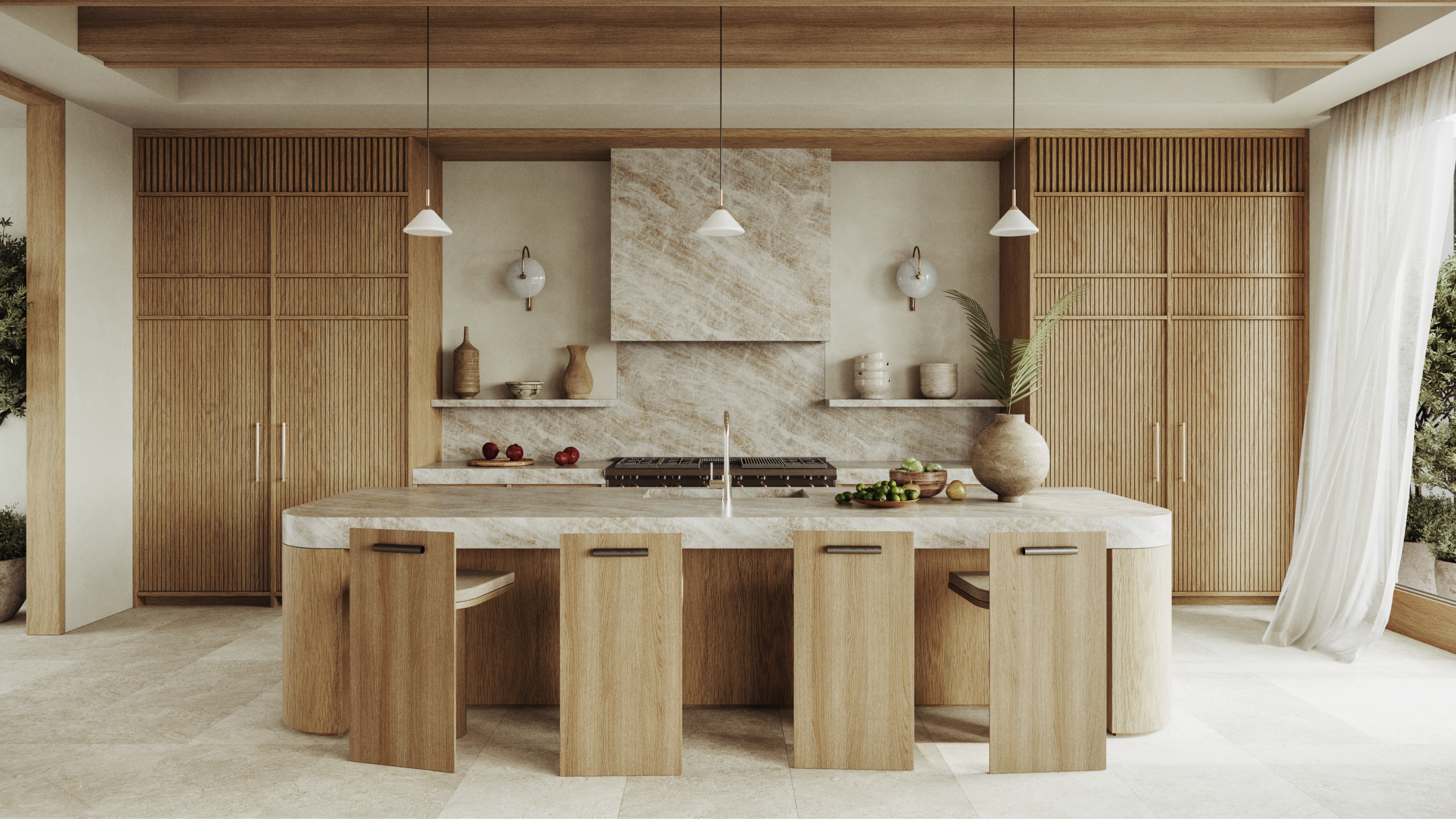 Does a Kitchen Need to Have a Door? The Pros and Cons (and Regulations) Explained
Does a Kitchen Need to Have a Door? The Pros and Cons (and Regulations) ExplainedAs popular as open-plan kitchens may be, they aren't for everyone. Our experts break down all the pros and cons of this design style.
By Maya Glantz Published
-
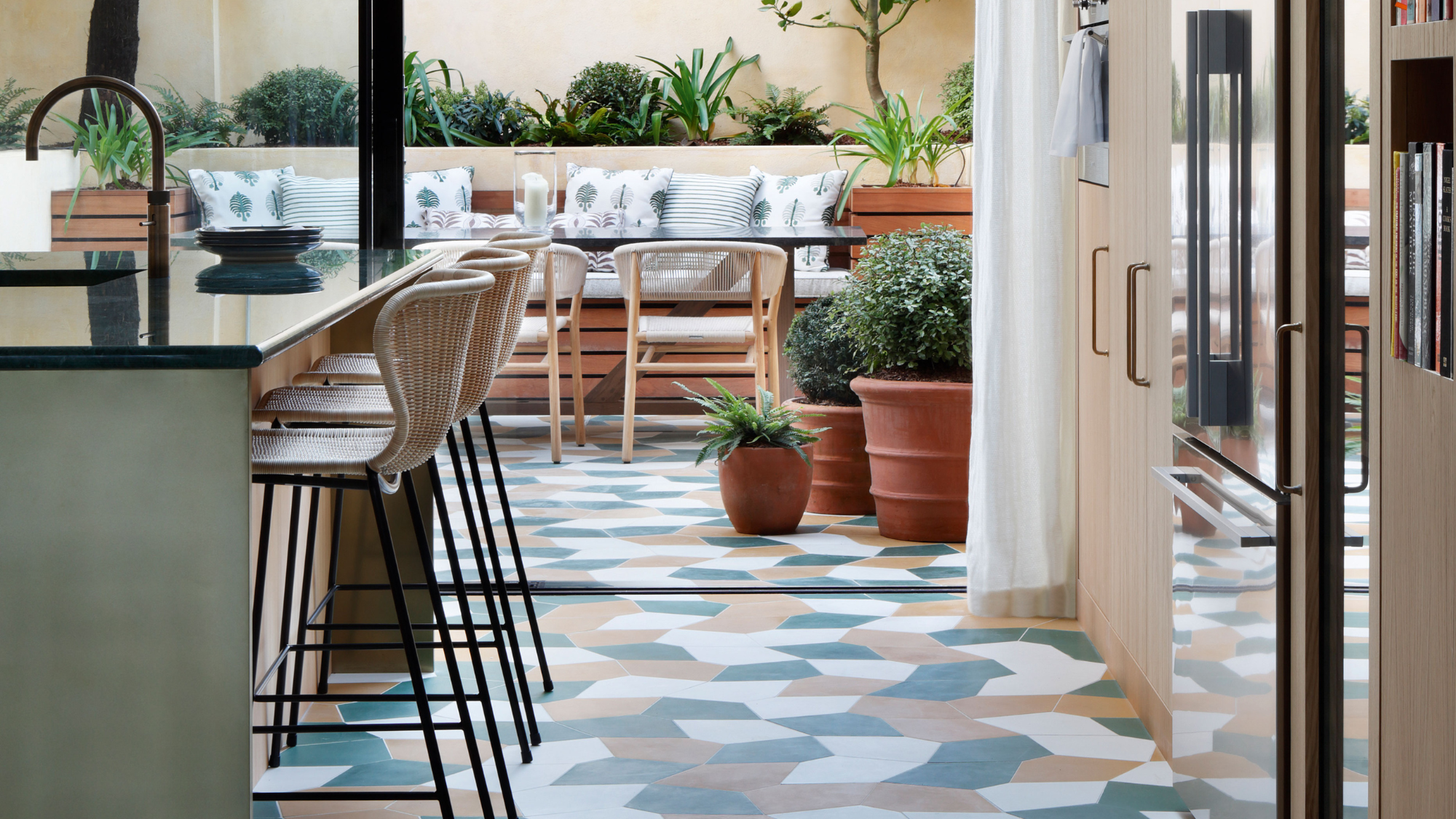 11 Kitchen Flooring Ideas to Build a Brilliant Renovation Scheme From the Ground Up
11 Kitchen Flooring Ideas to Build a Brilliant Renovation Scheme From the Ground UpStarting with your kitchen's flooring isn't a bad idea when it comes to creating a successful scheme — here are 11 modern ways to do it, and expert advice from interior designers
By Tessa Pearson Published
-
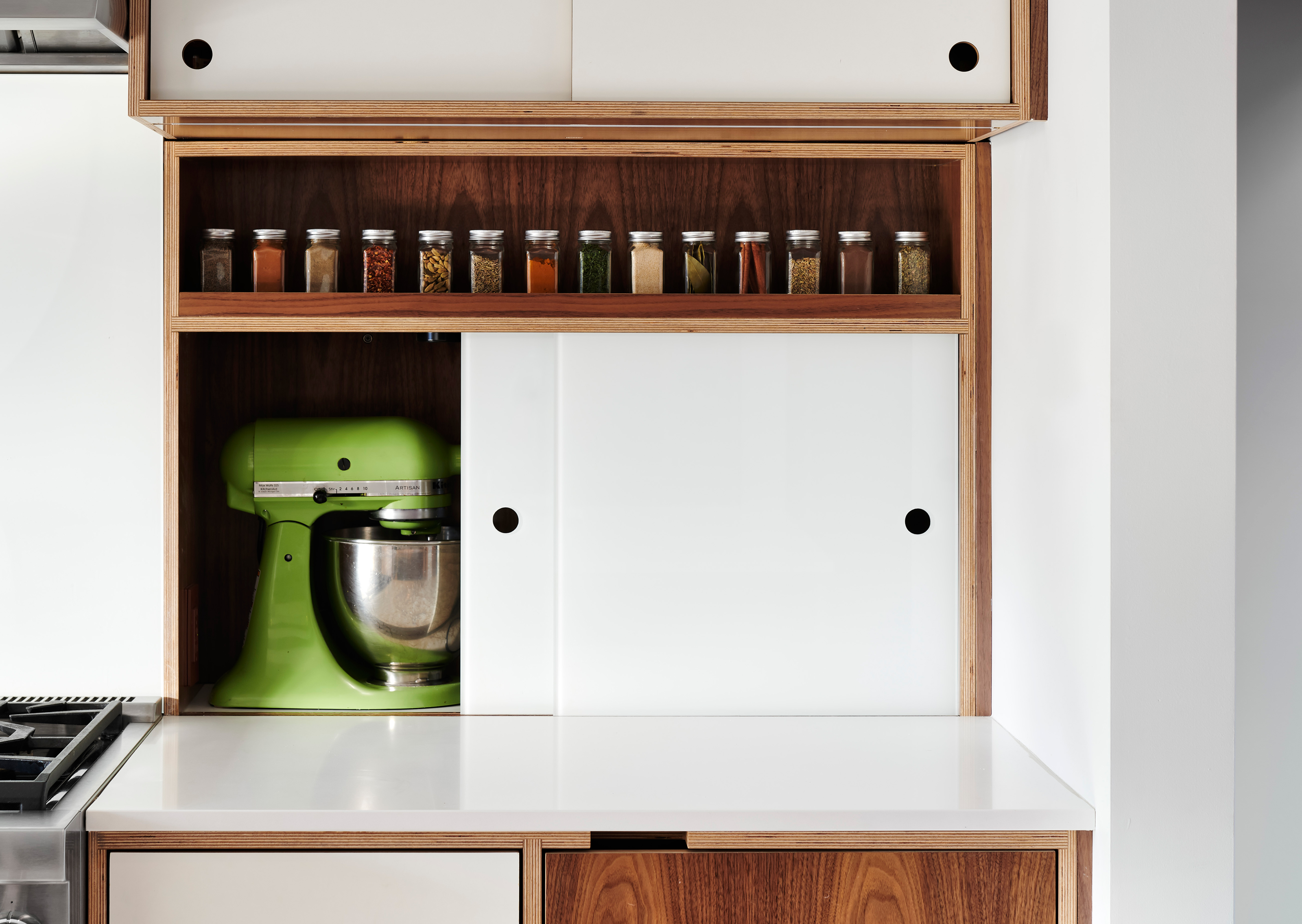 "I Just Bought a Stand Mixer — Where Can I Store It in My Small Kitchen?" 6 Clever Storage Ideas to Consider
"I Just Bought a Stand Mixer — Where Can I Store It in My Small Kitchen?" 6 Clever Storage Ideas to ConsiderLove your stand mixer, but hate not knowing how to store it? We've got the same problem, but these six expert tips have solved our limited storage problems for good.
By Amiya Baratan Published
-
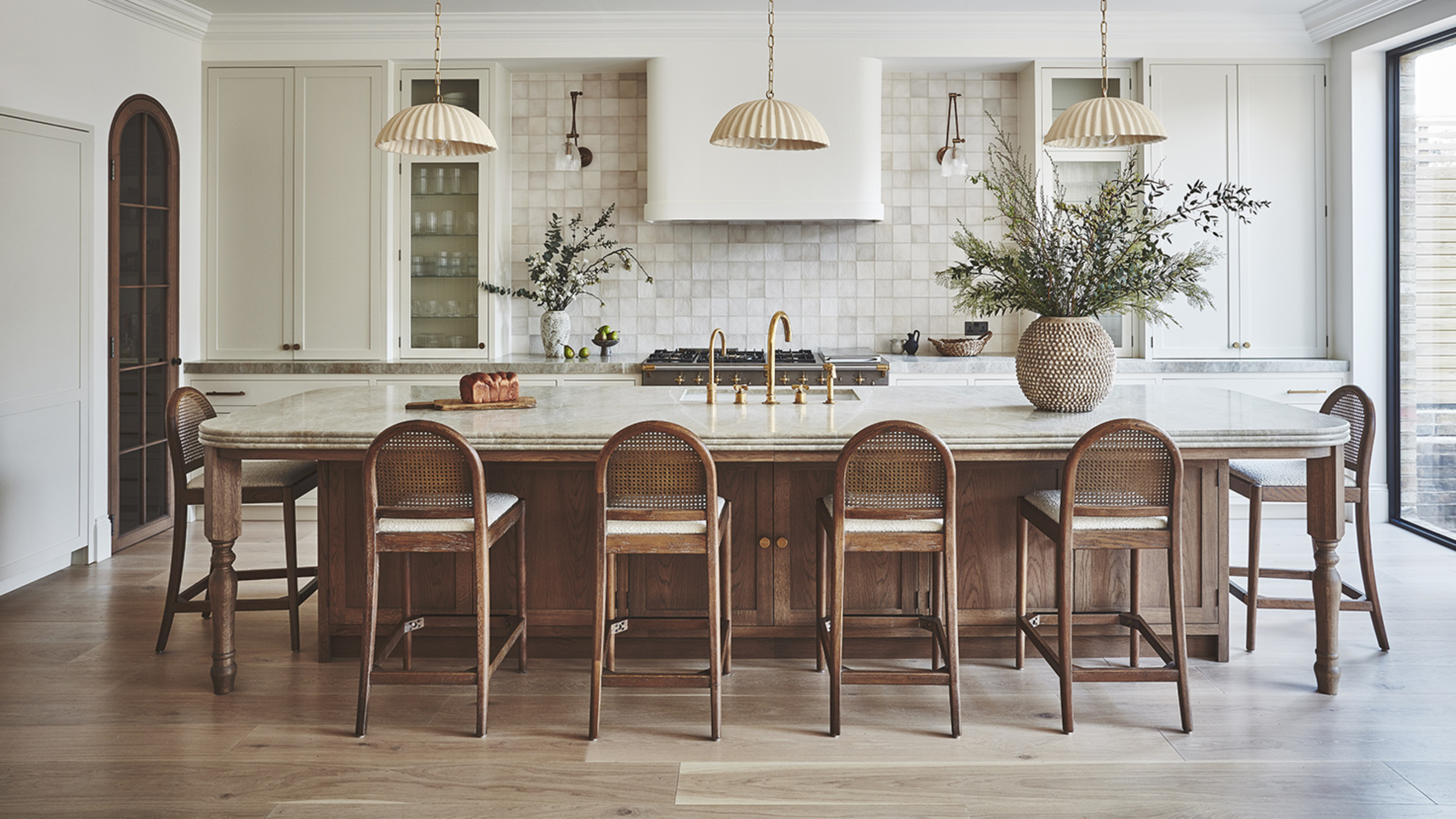 Bar Stools vs Counter Stools — The Difference You Need to Know to Avoid Buying the Wrong One for Your Kitchen
Bar Stools vs Counter Stools — The Difference You Need to Know to Avoid Buying the Wrong One for Your KitchenYou might think they're the same thing, but bar stools and counter stools are subtly different, and knowing how will help you avoid buying the wrong ones
By Maya Glantz Published
-
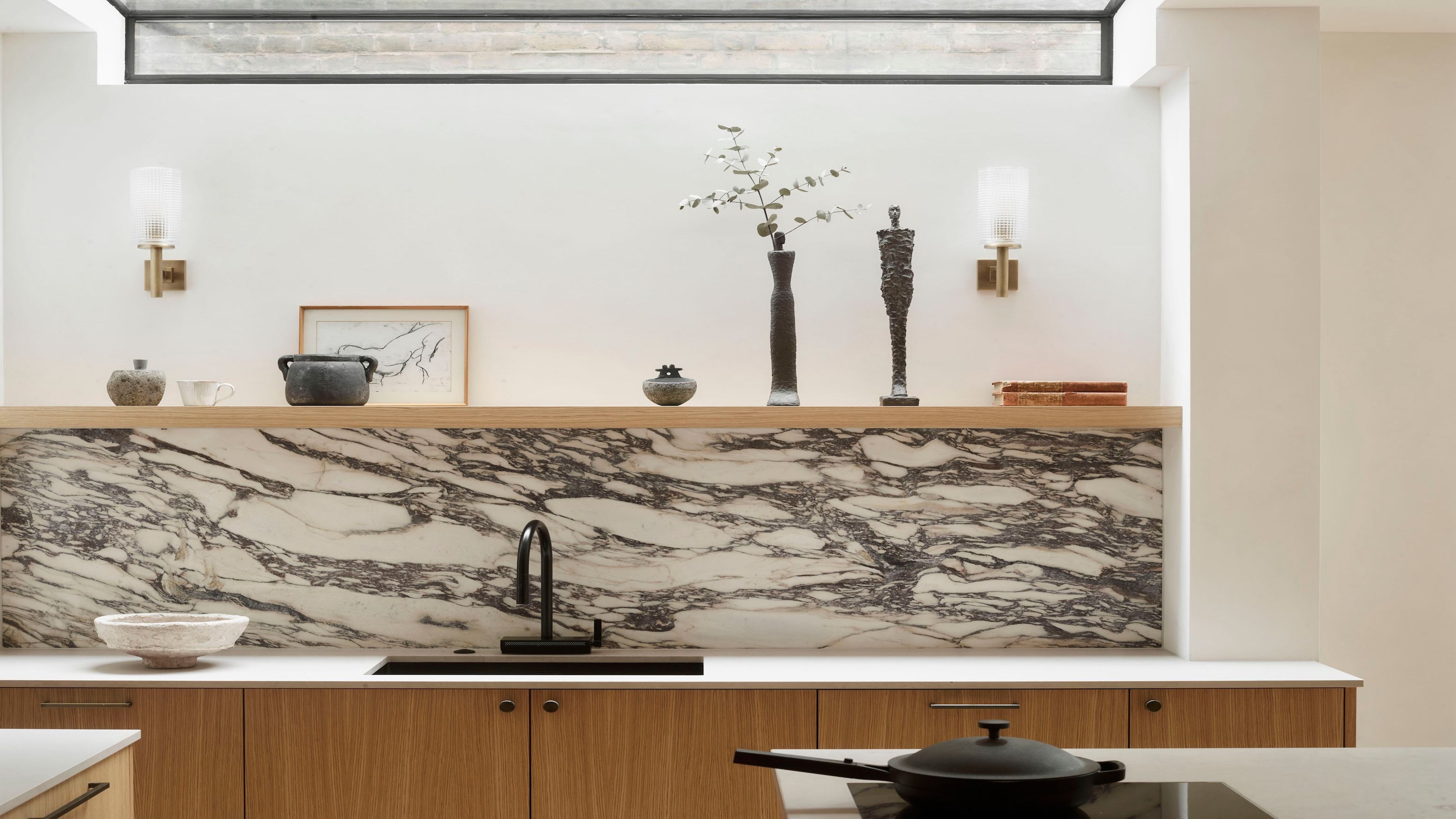 10 Kitchen Tap Ideas That Will Upgrade Your Sink — Who'd Have Thought Doing the Dishes Could Look This Good?
10 Kitchen Tap Ideas That Will Upgrade Your Sink — Who'd Have Thought Doing the Dishes Could Look This Good?From pot fillers to pull-out hoses, these are the kitchen taps that the experts are lusting over right now…
By Lara Sargent Published
-
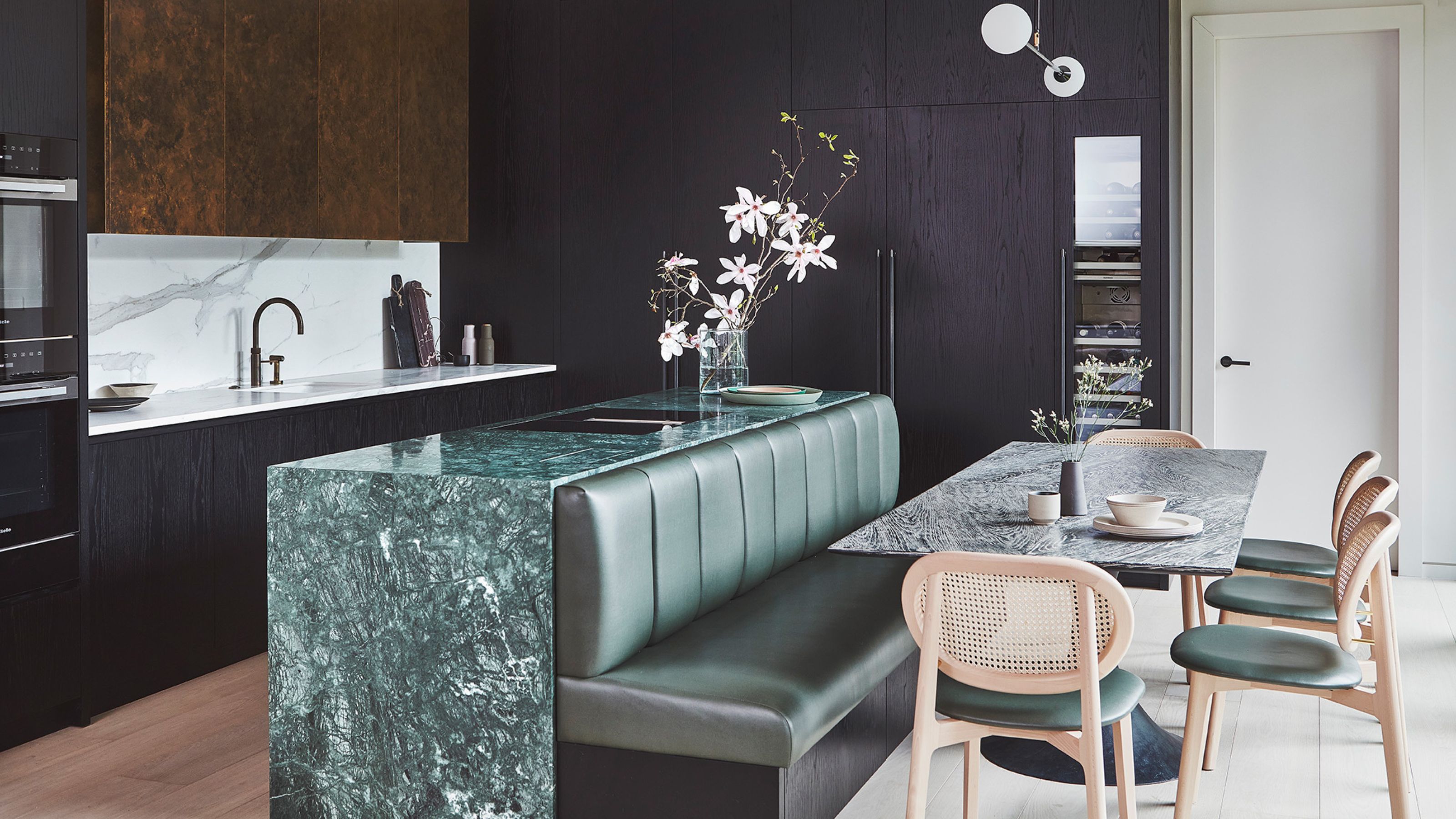 16 Kitchen Island Ideas That Feel Pitch Perfect for 2025 Projects
16 Kitchen Island Ideas That Feel Pitch Perfect for 2025 ProjectsWho would have thought there would be so much inspiration to choose from? Experts share their stylish and most inspiring ideas for kitchen islands
By Faiza Saqib Published
